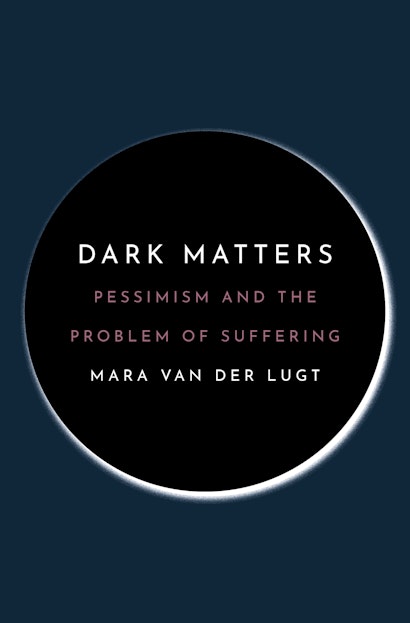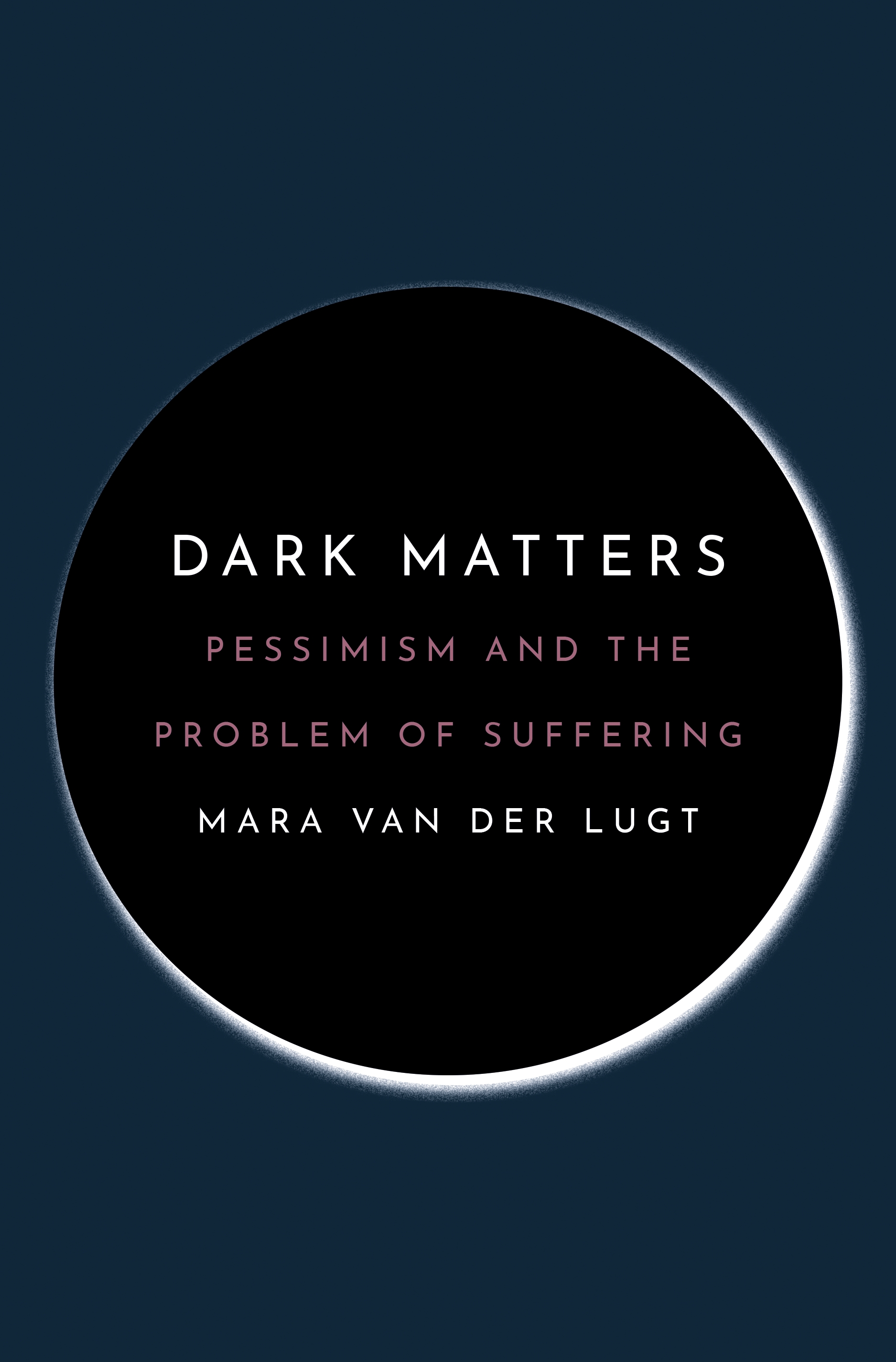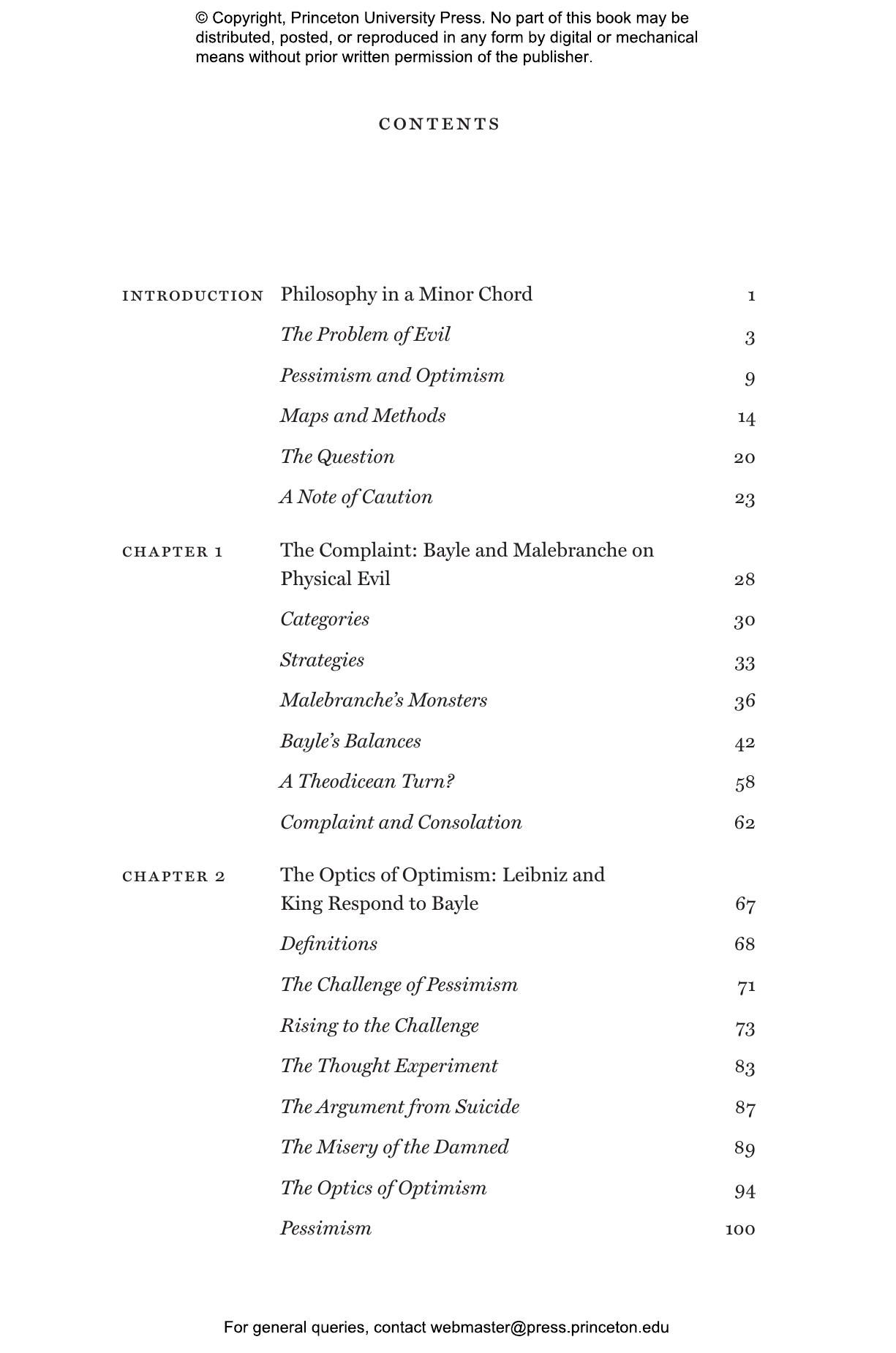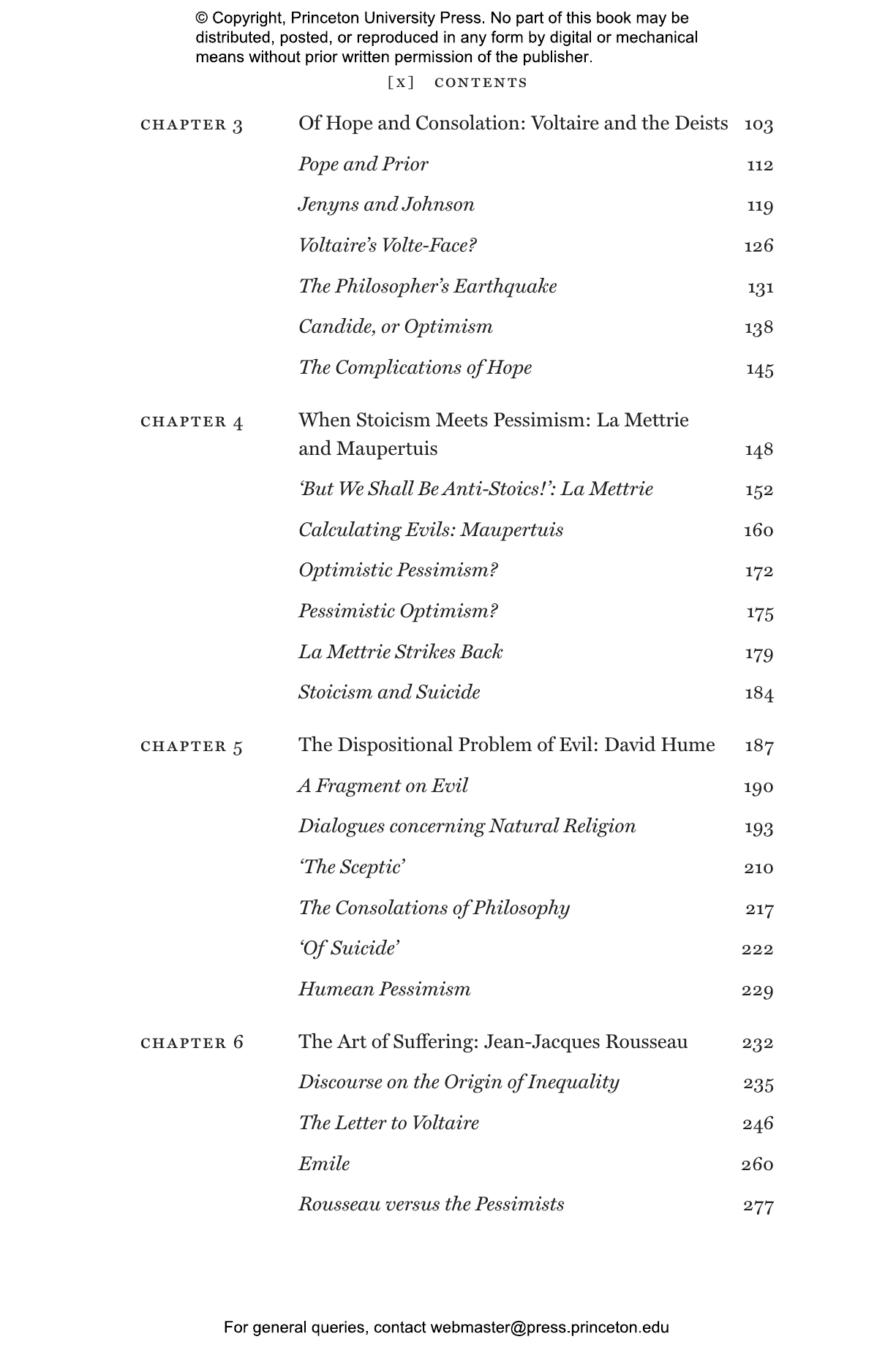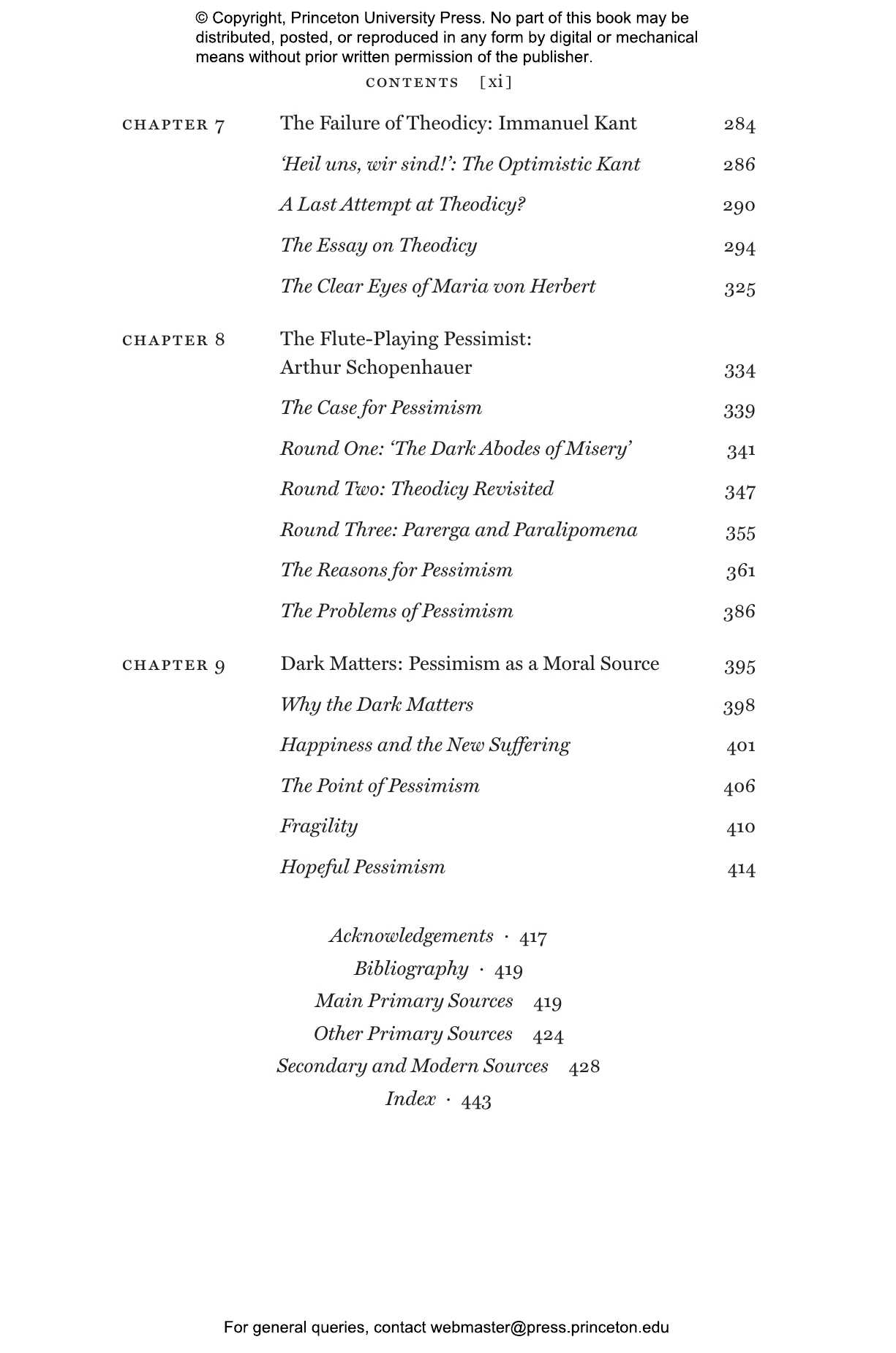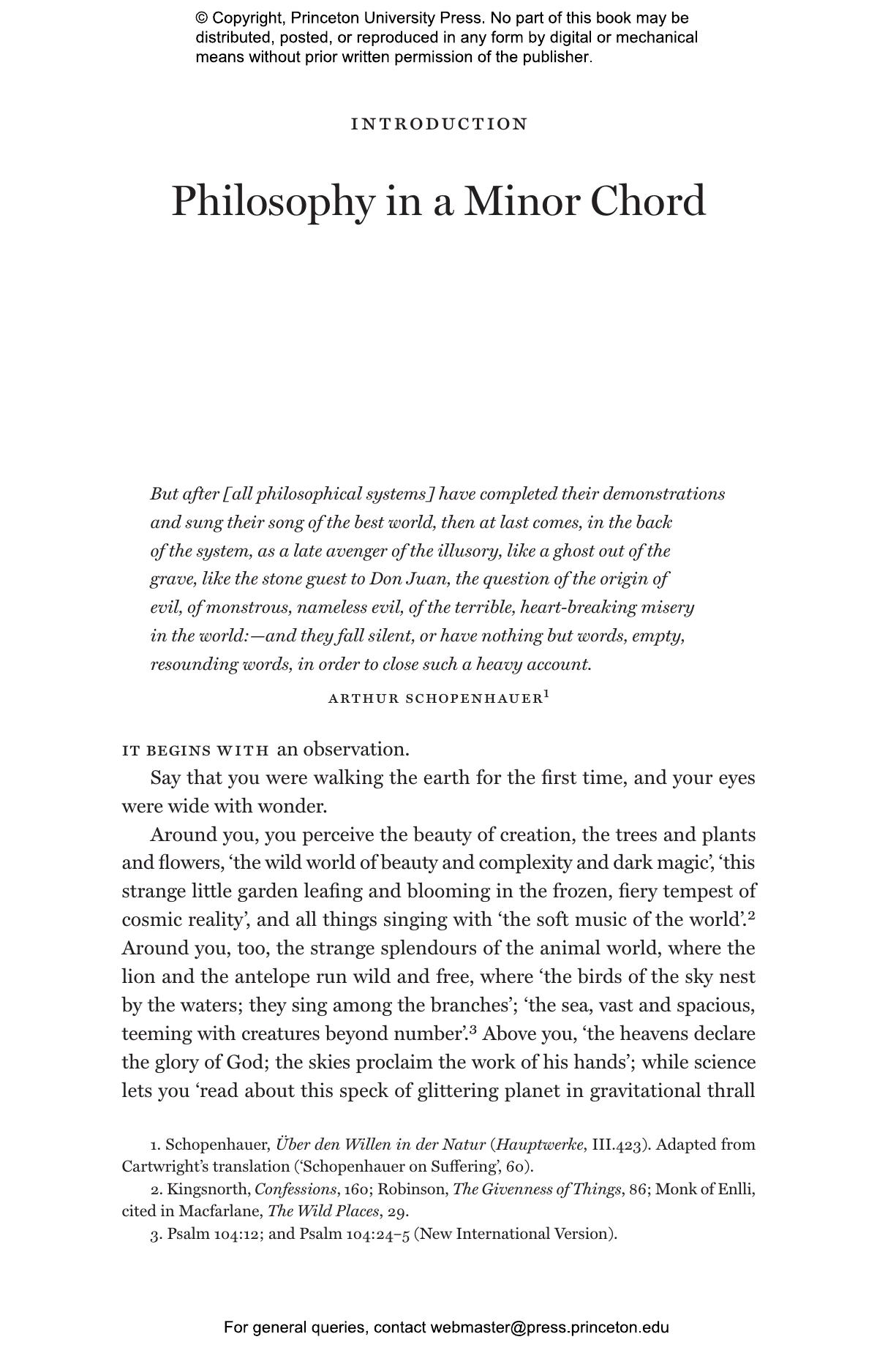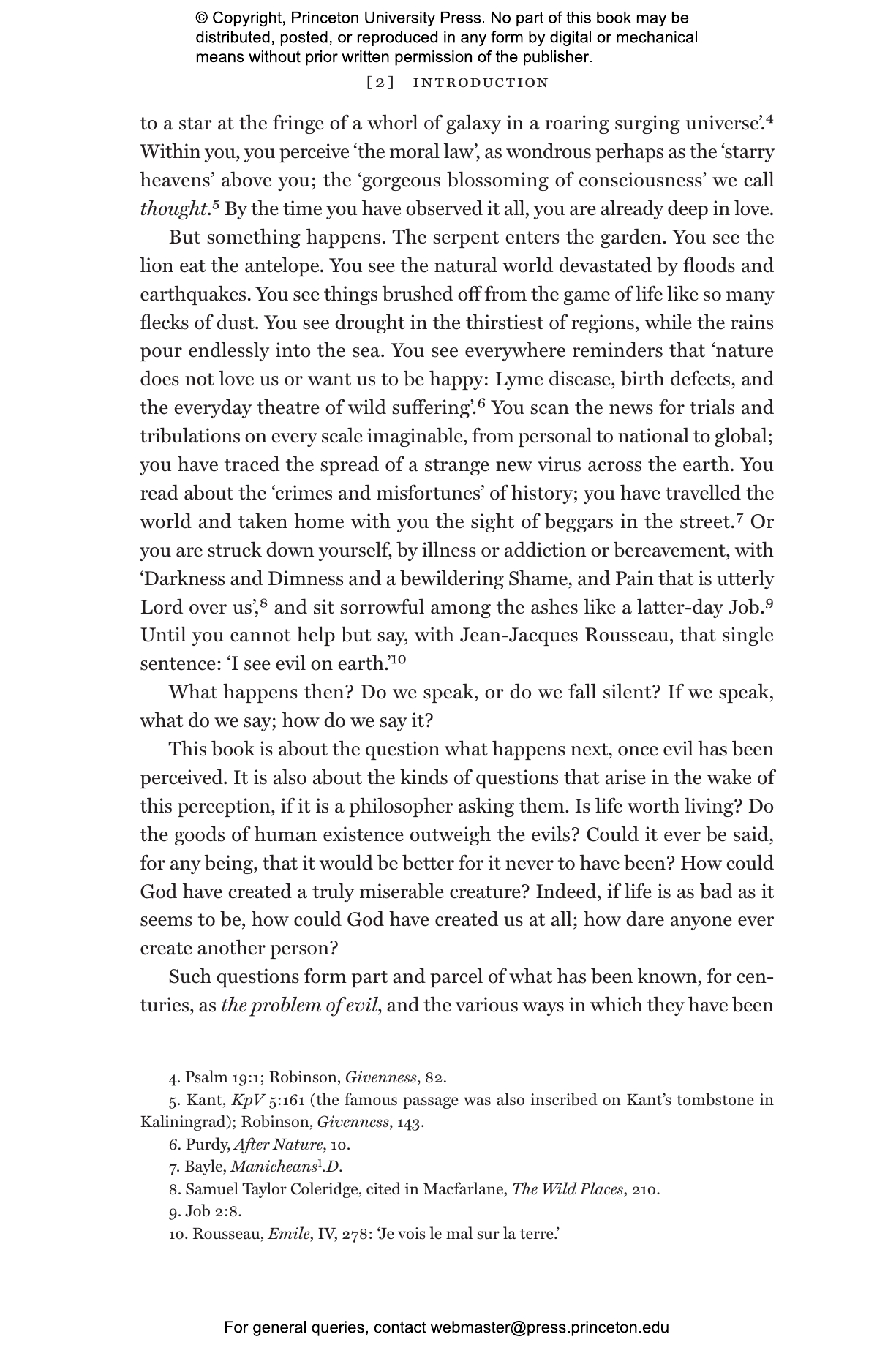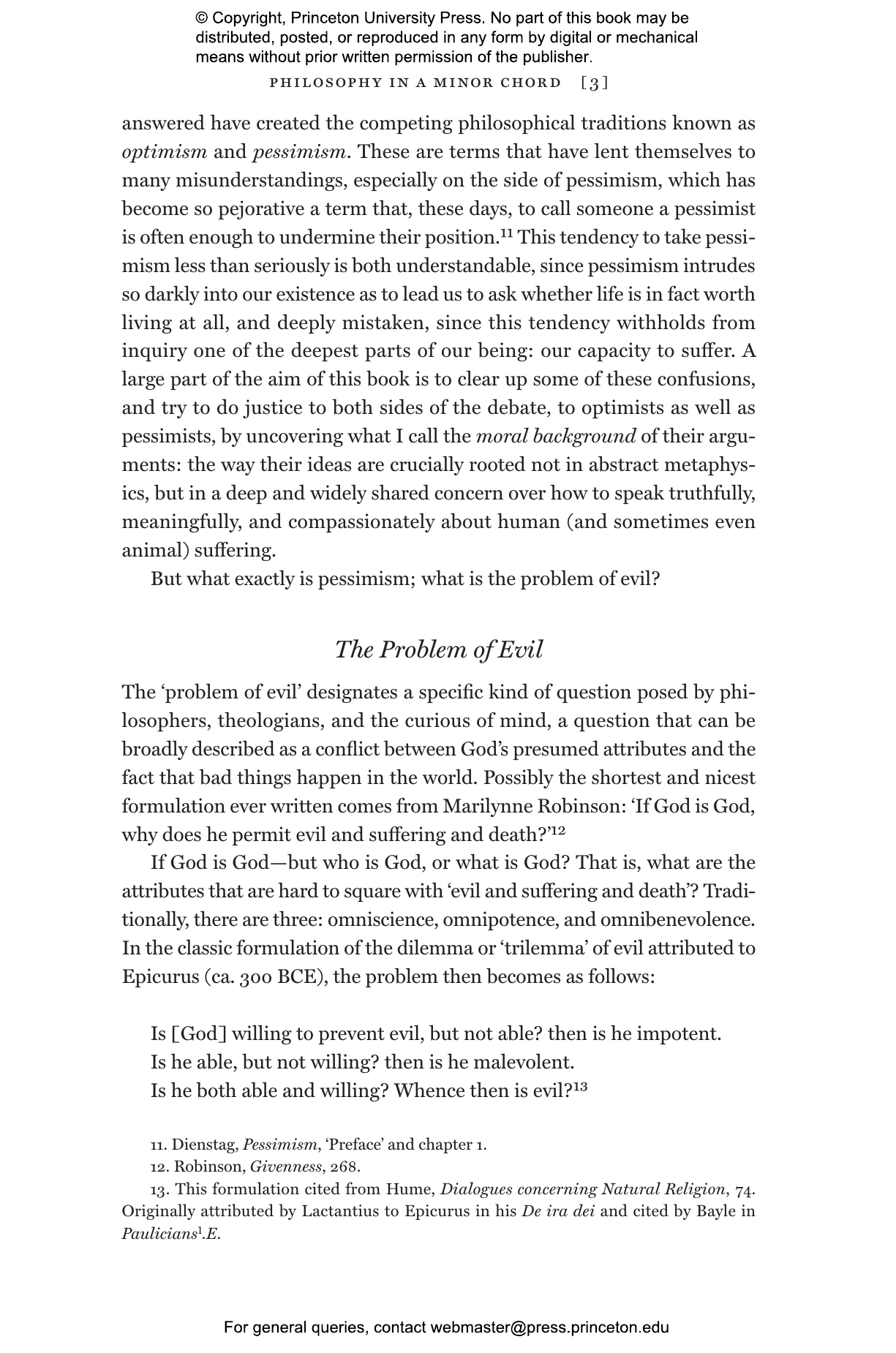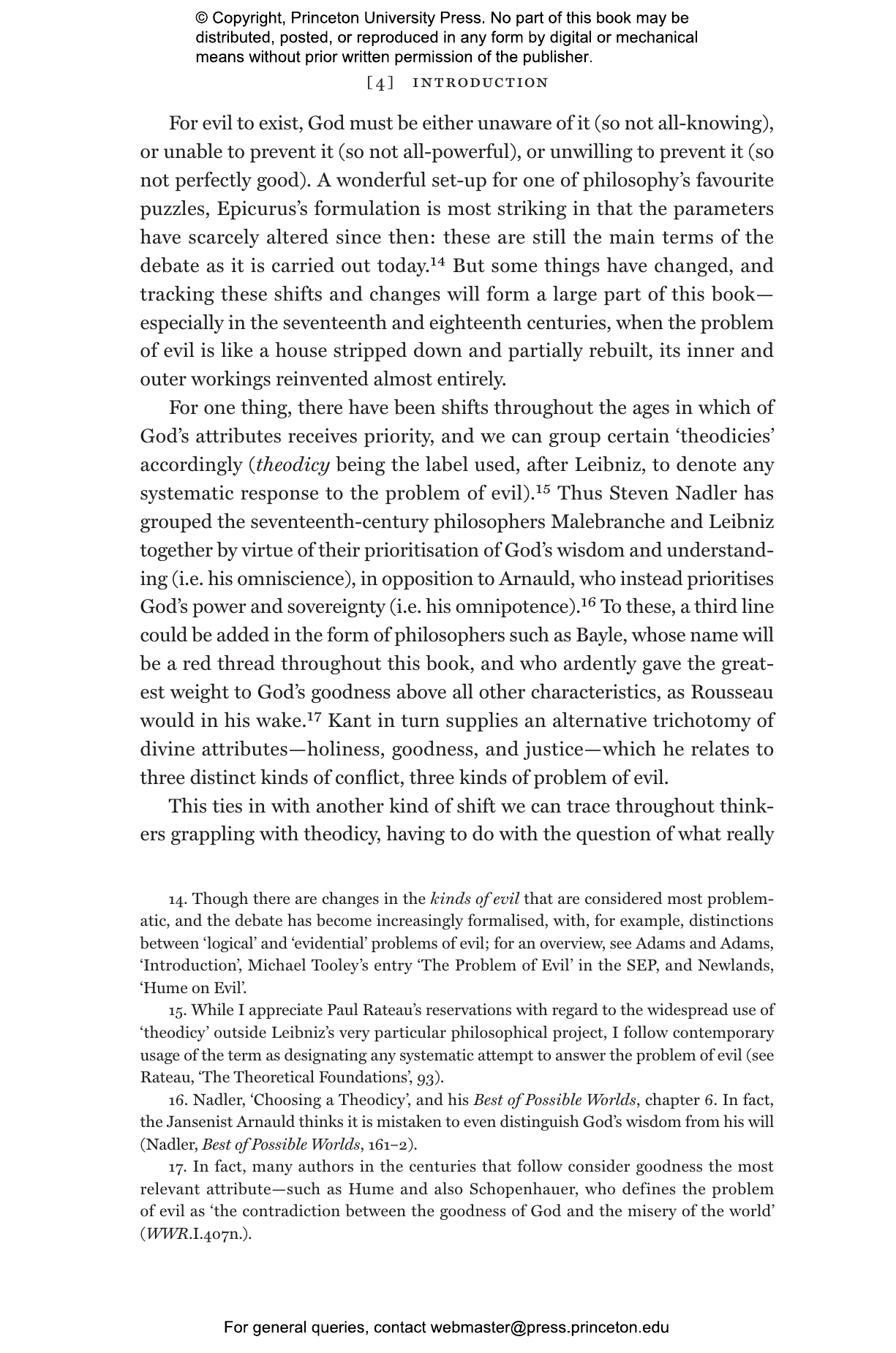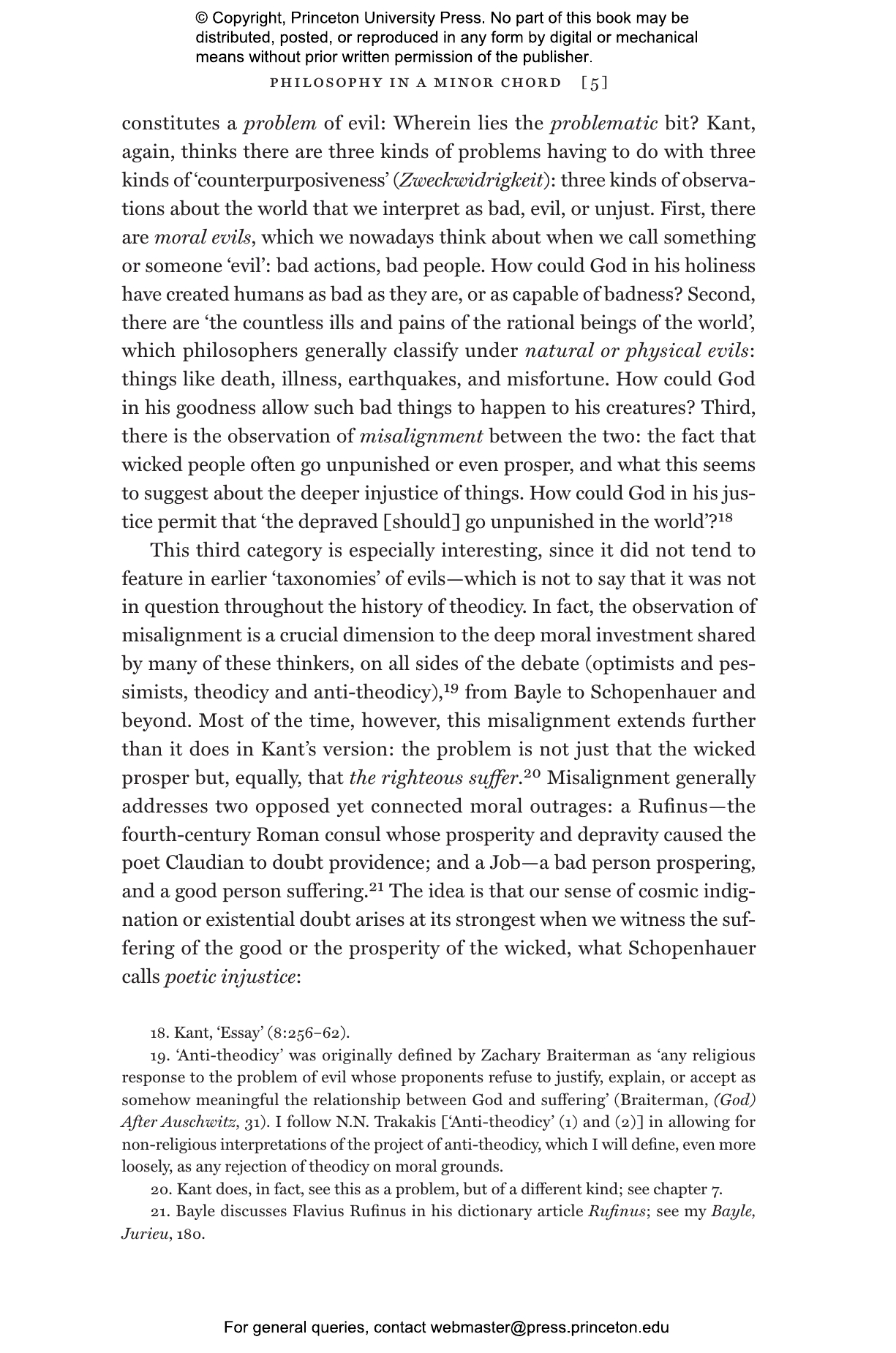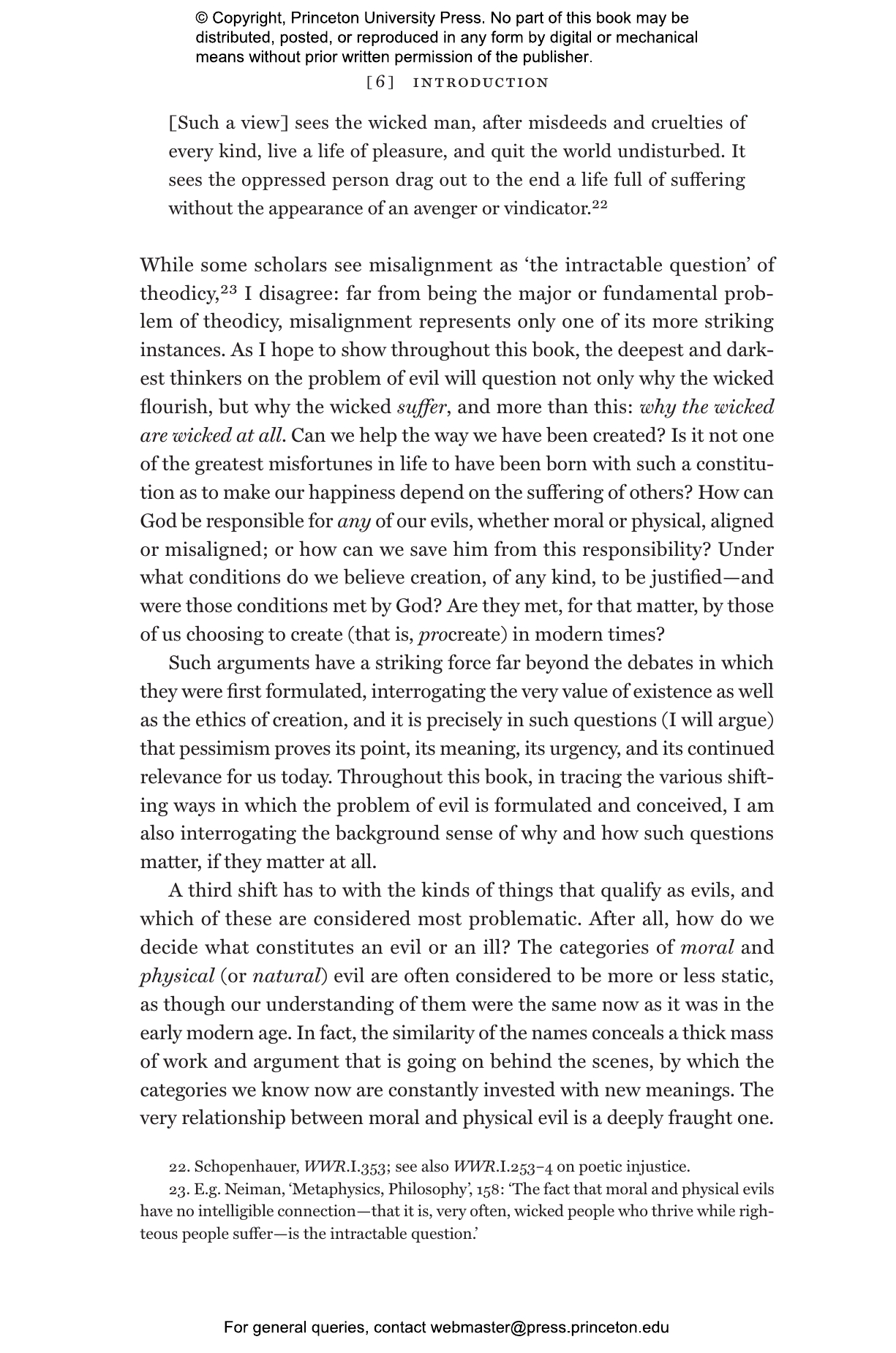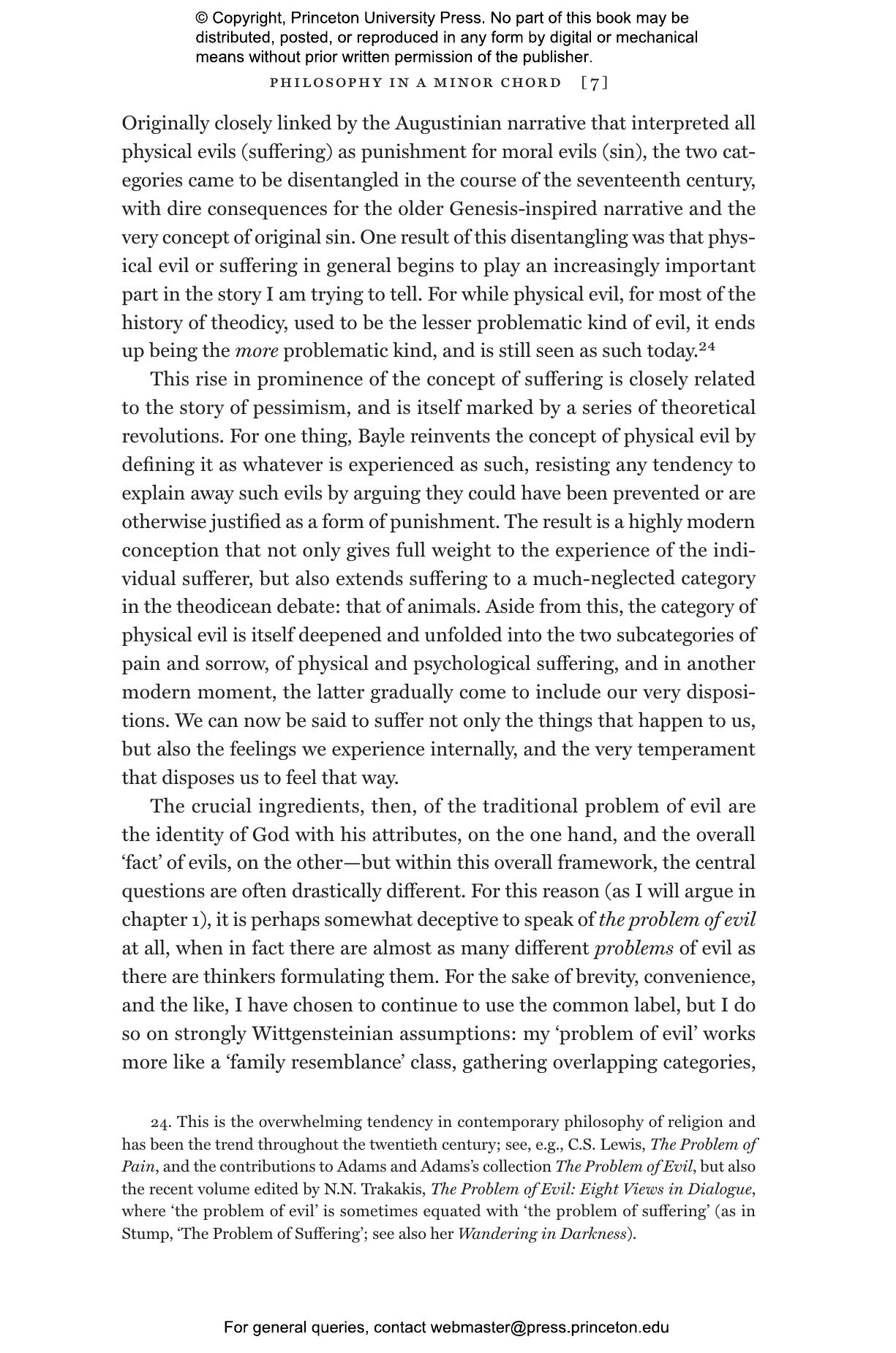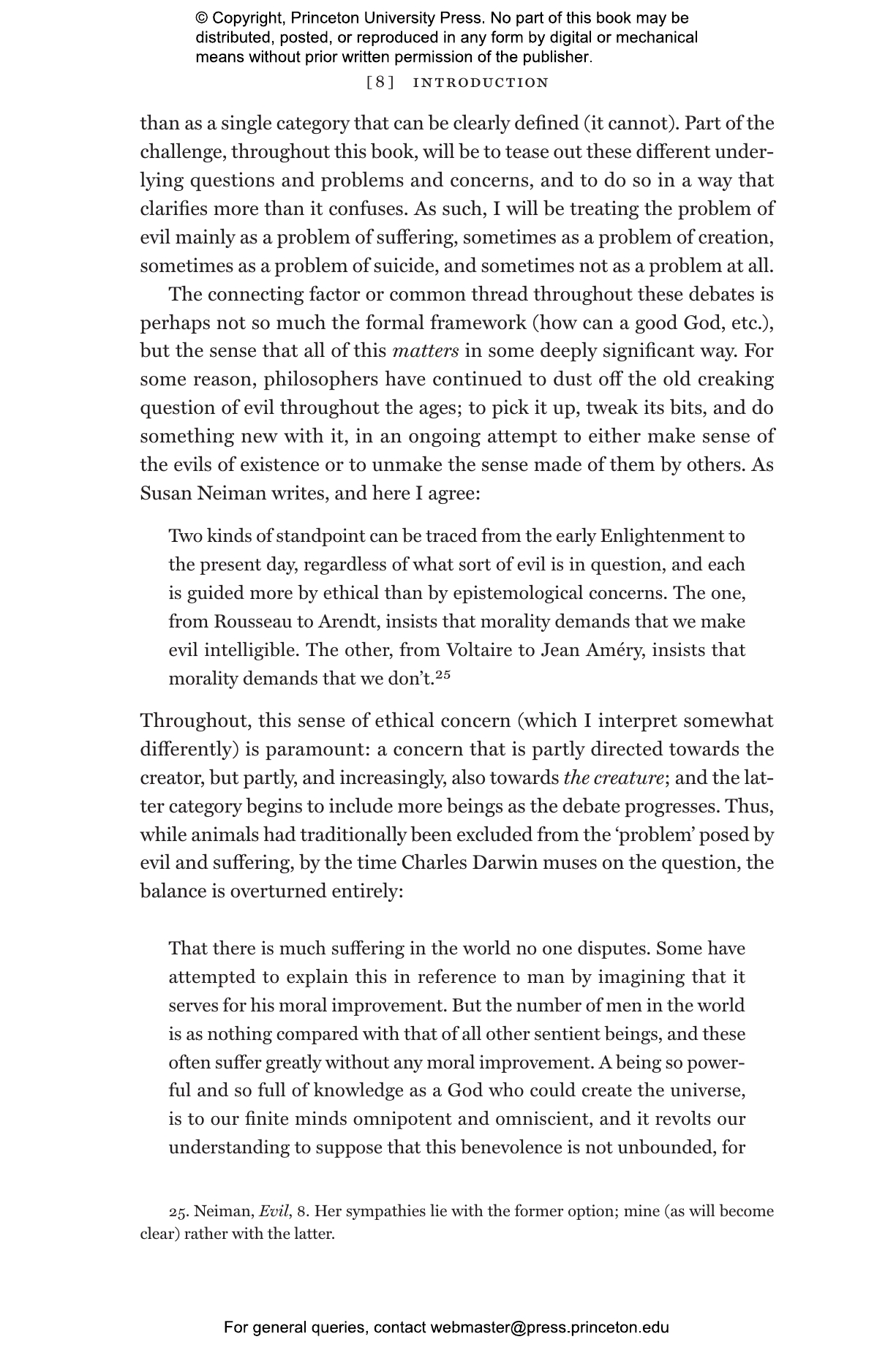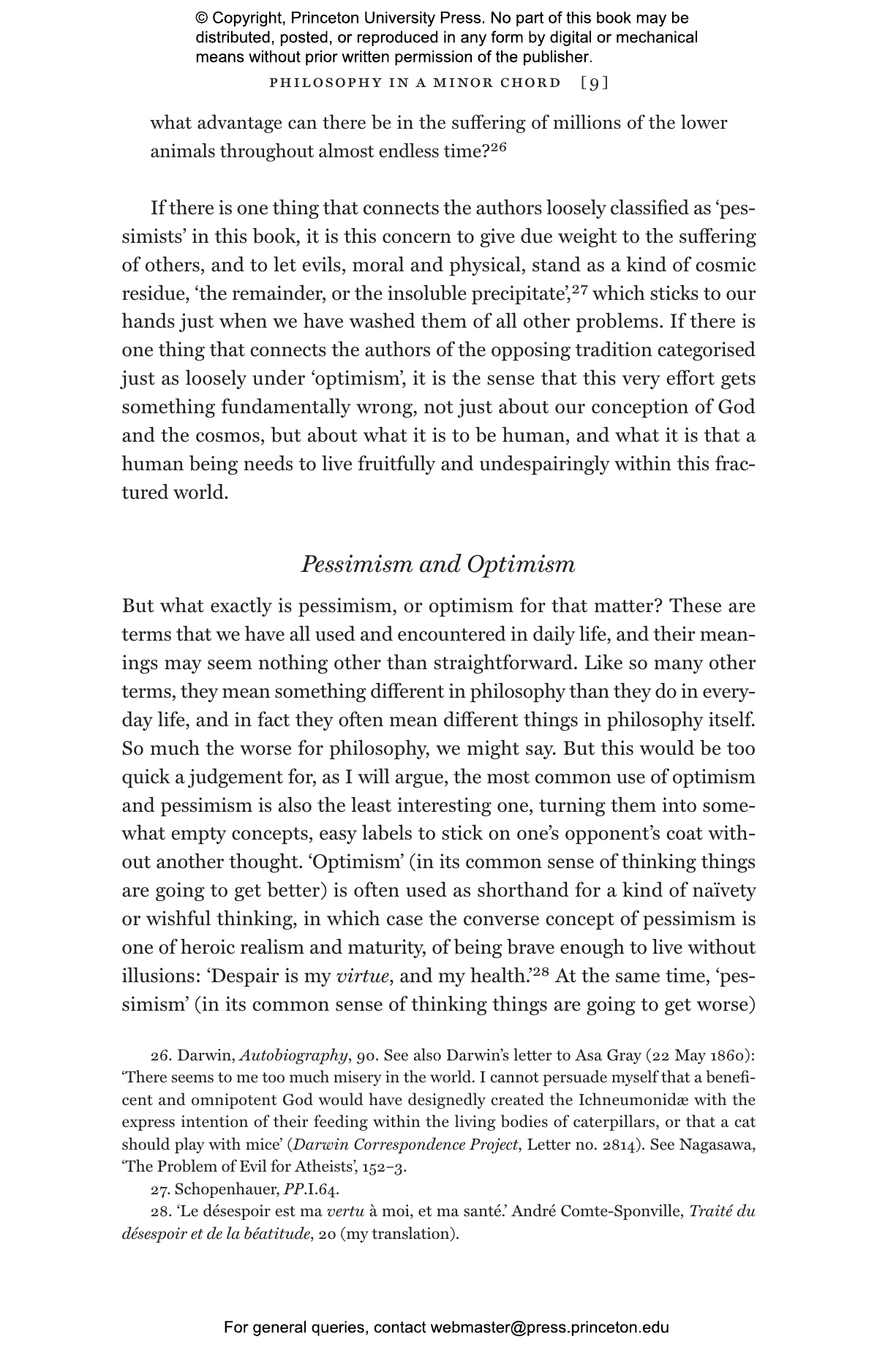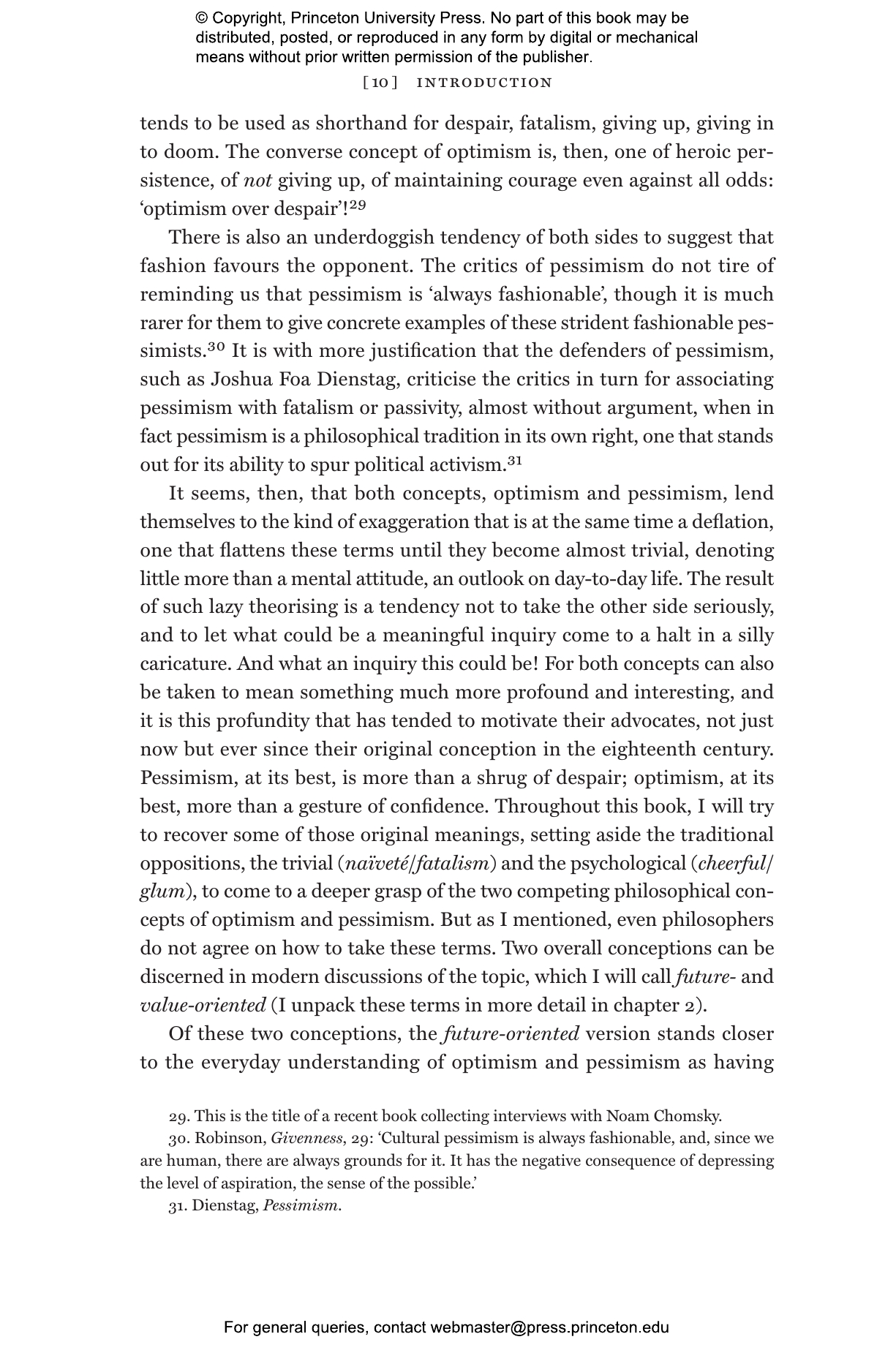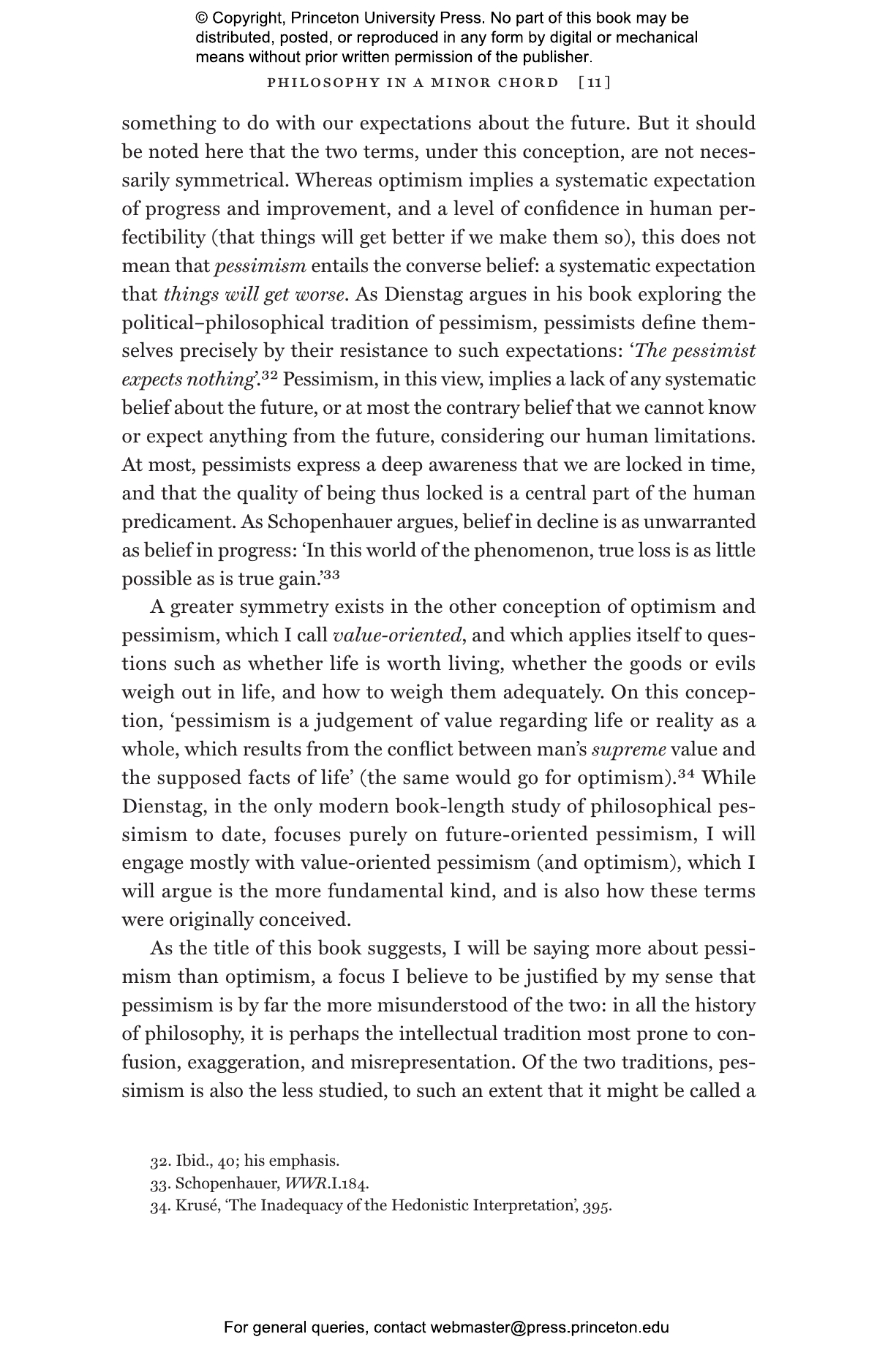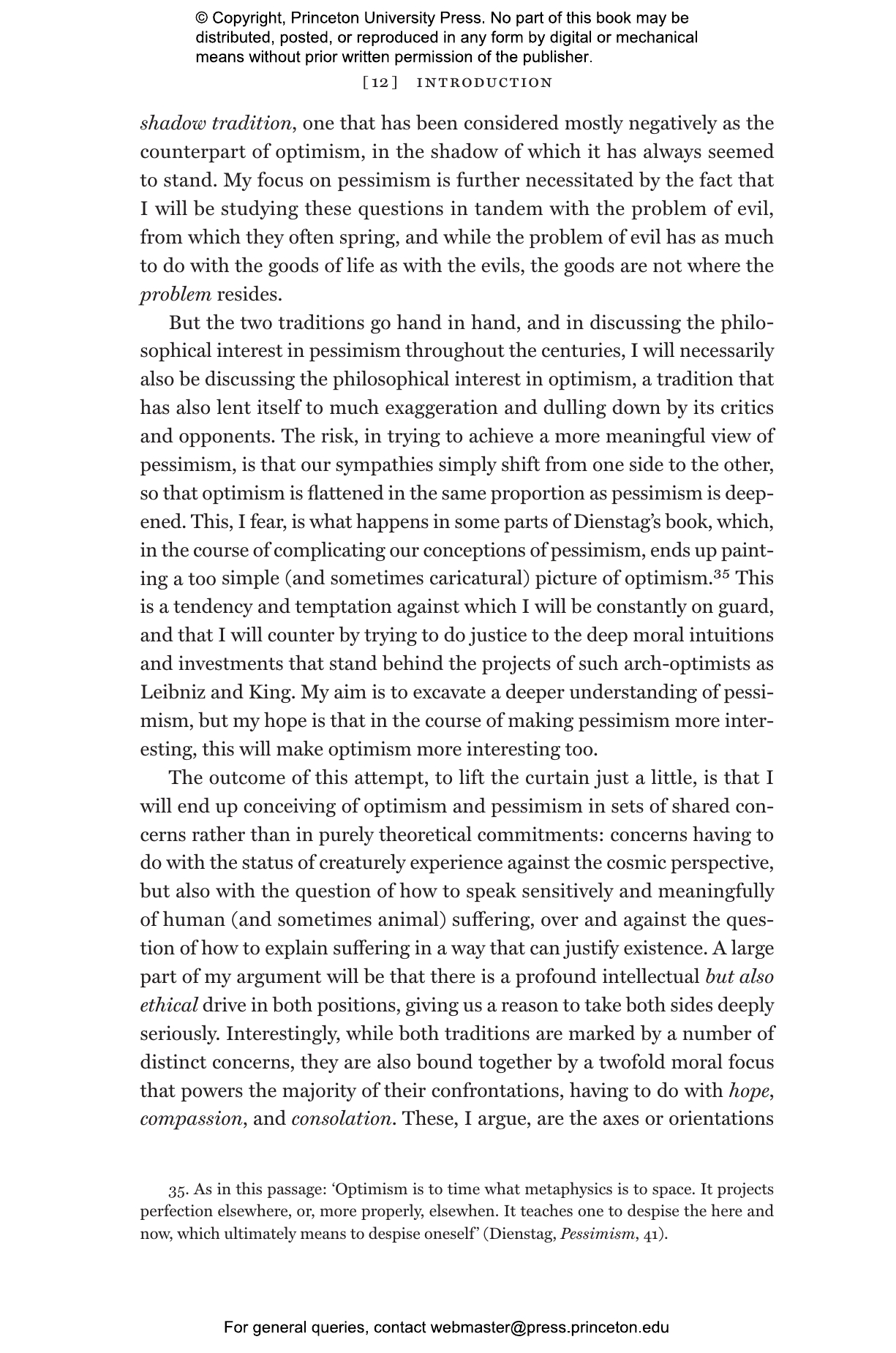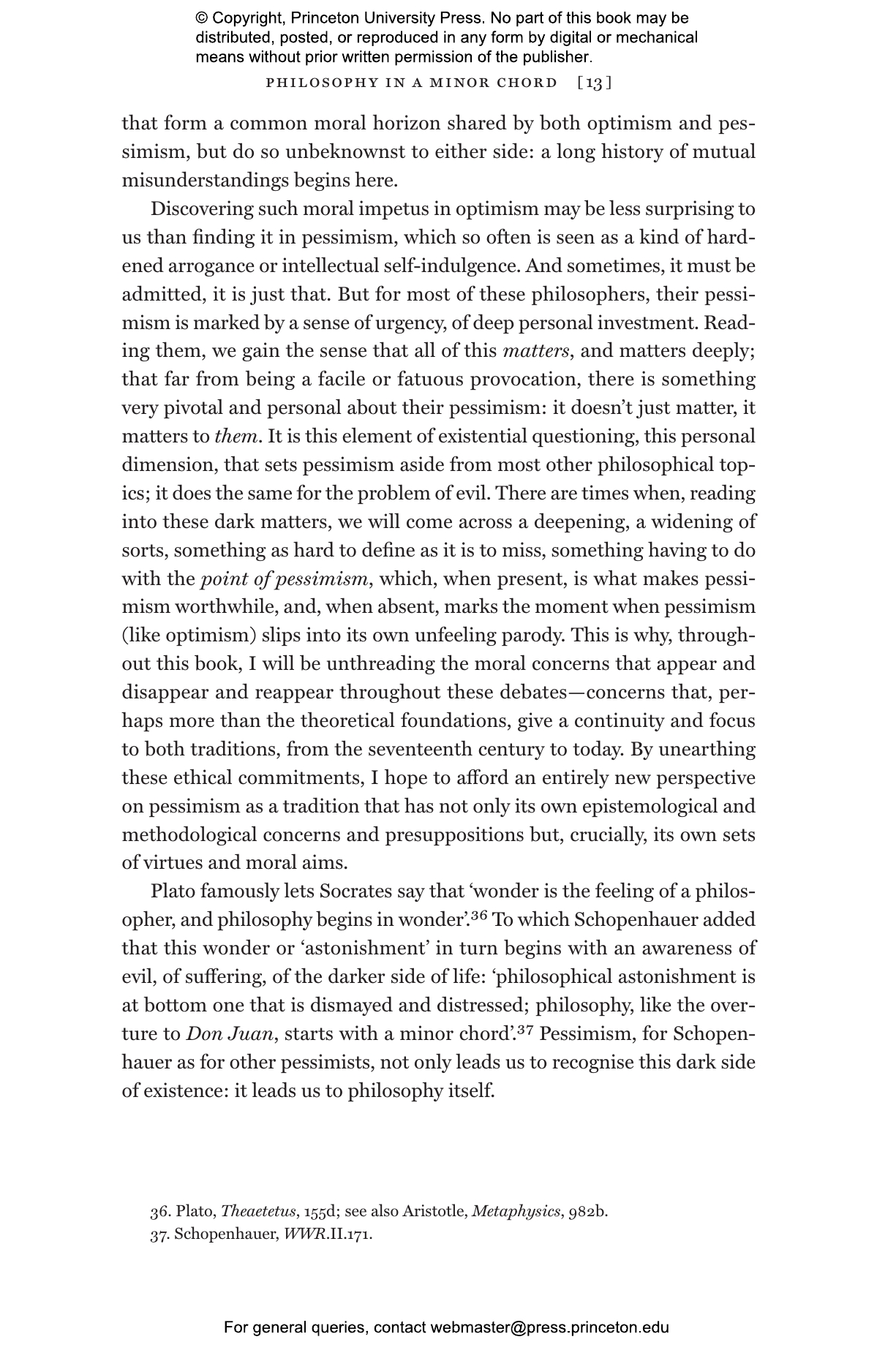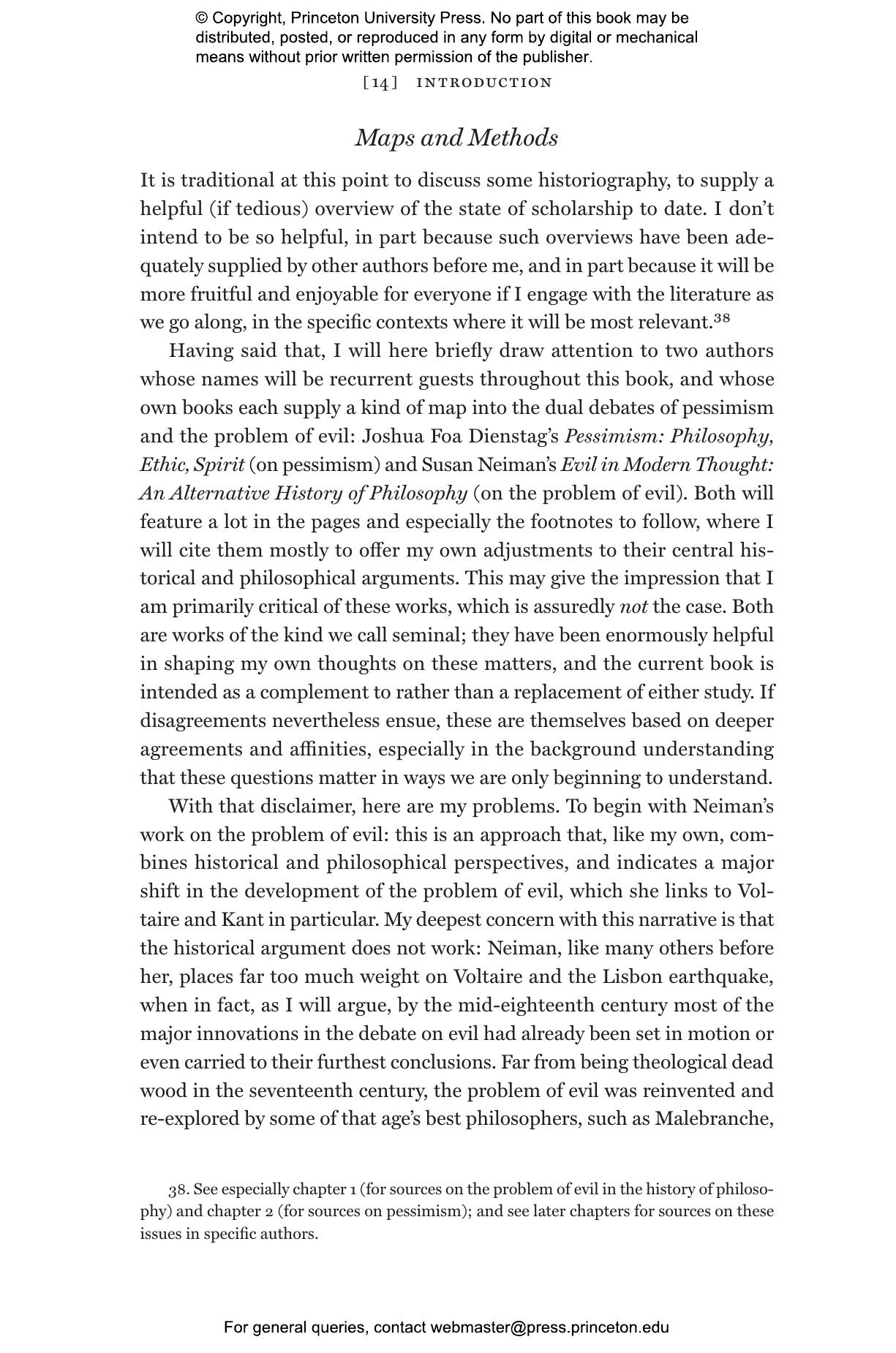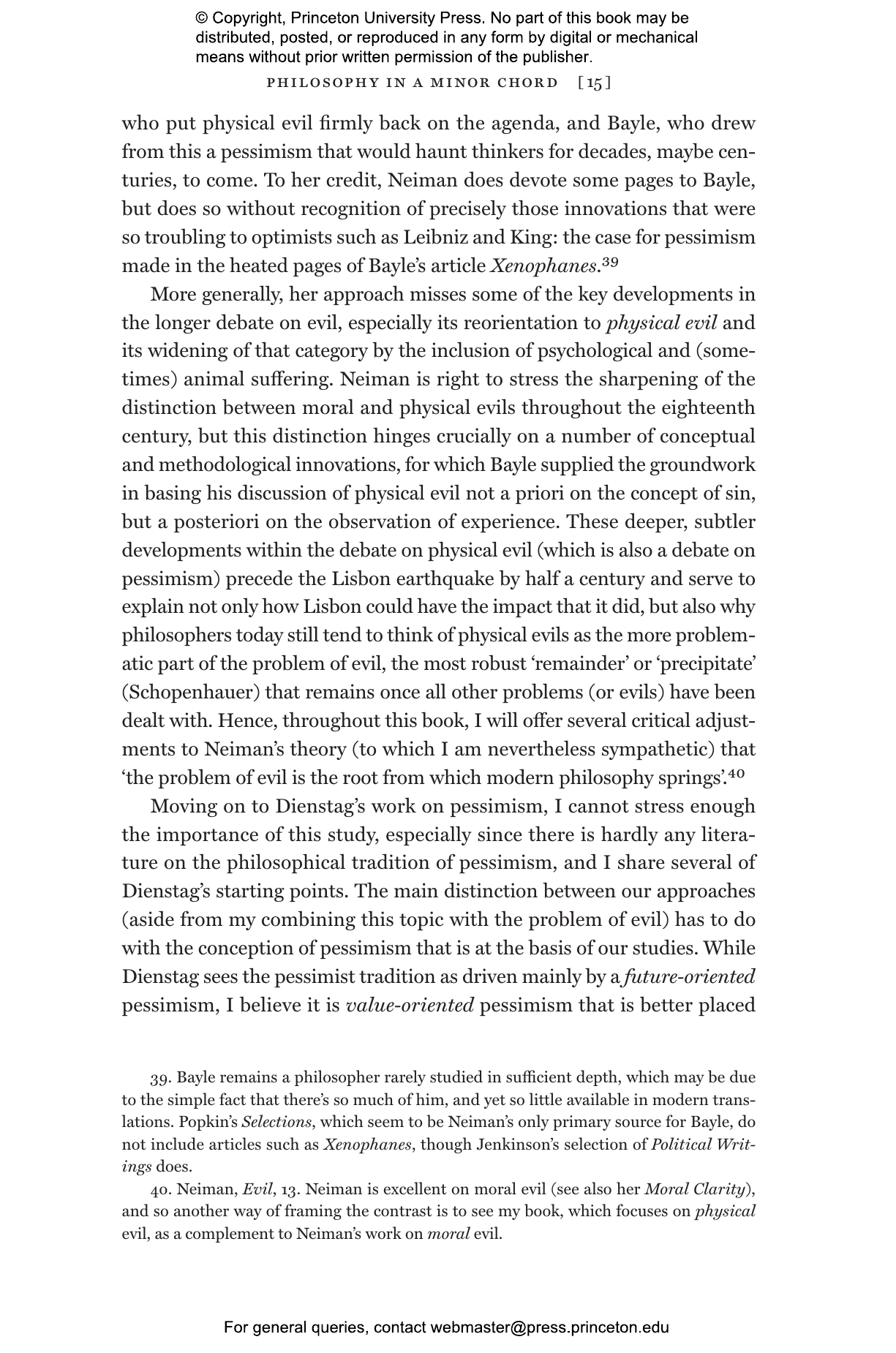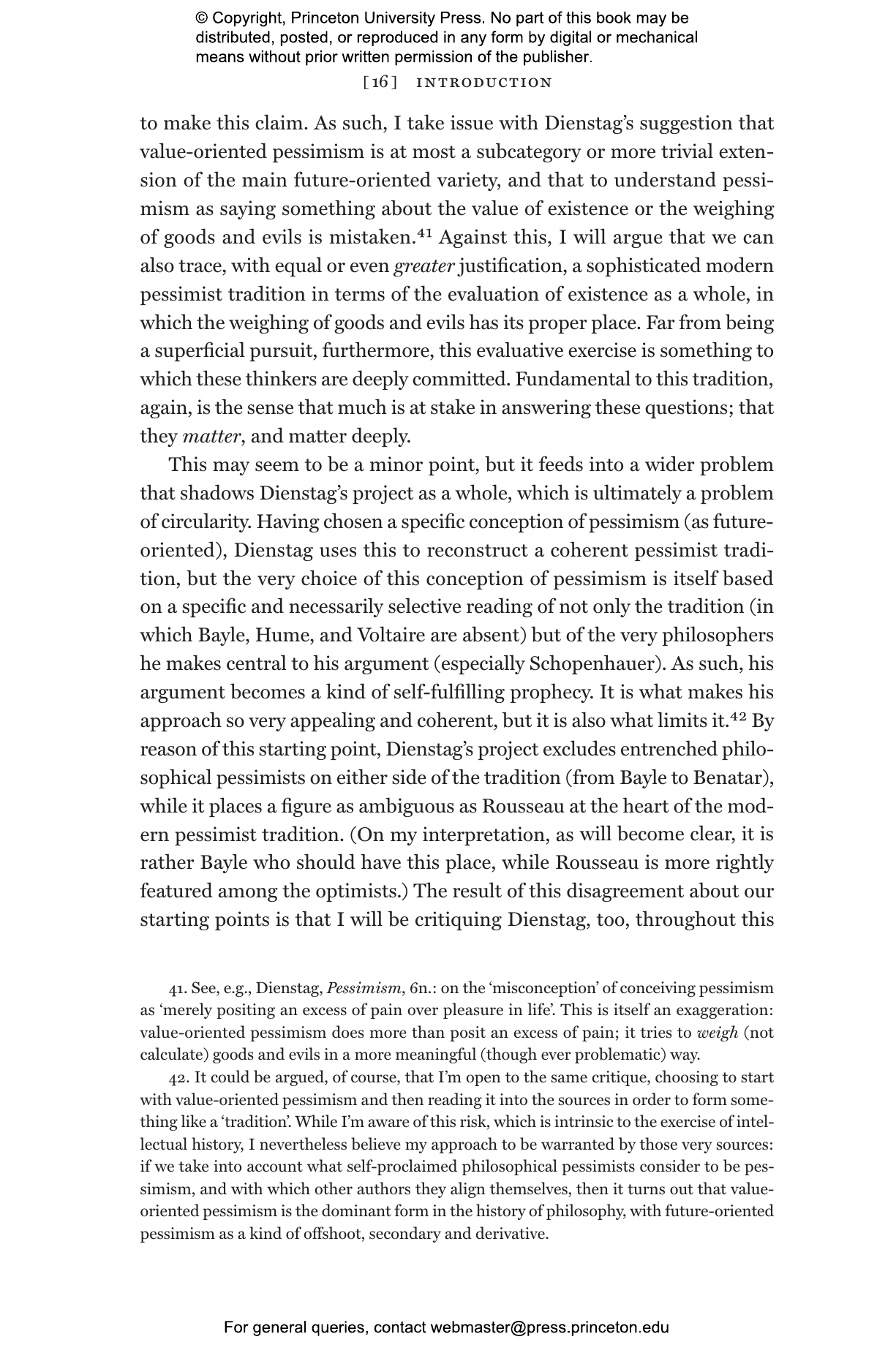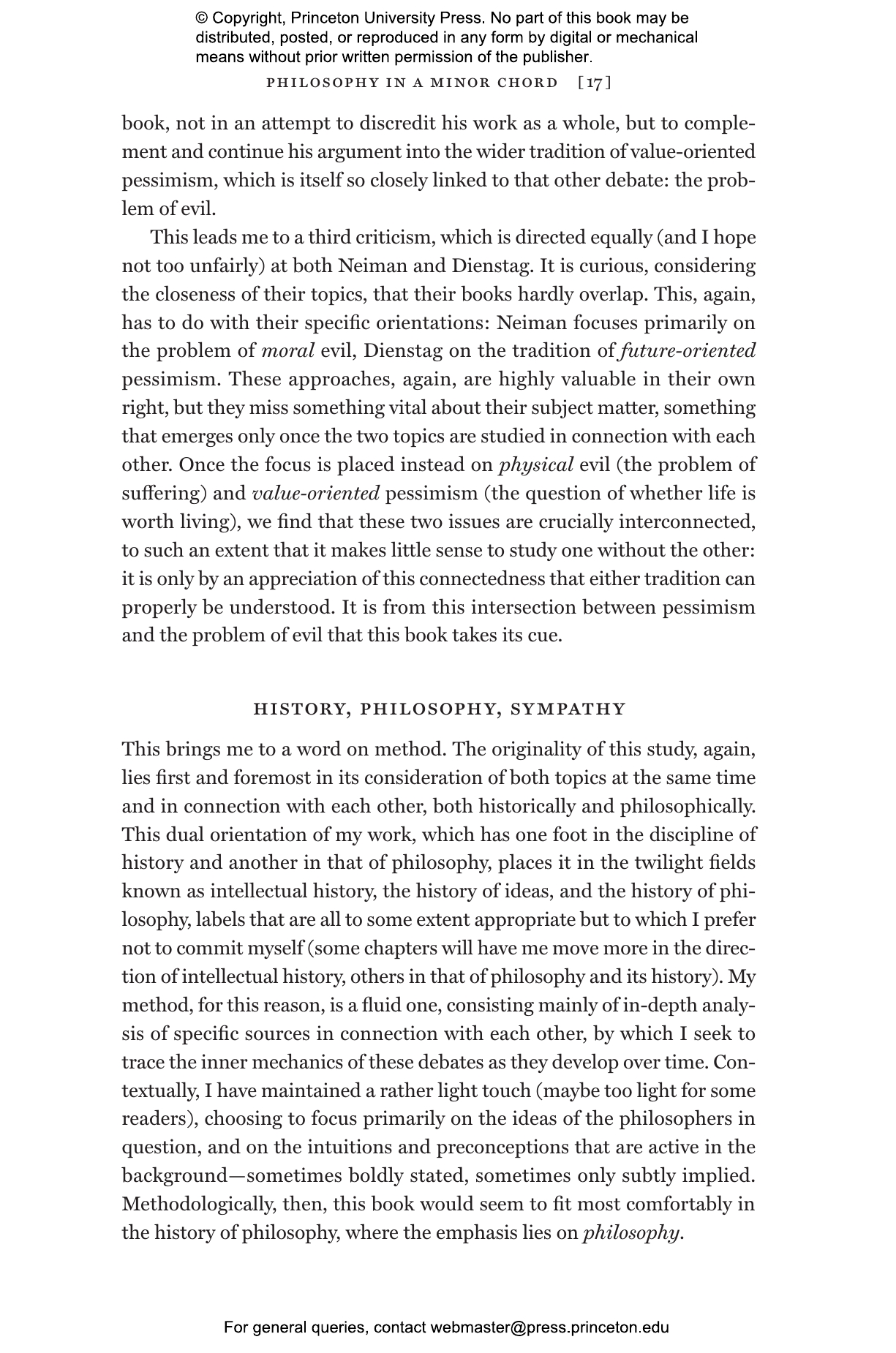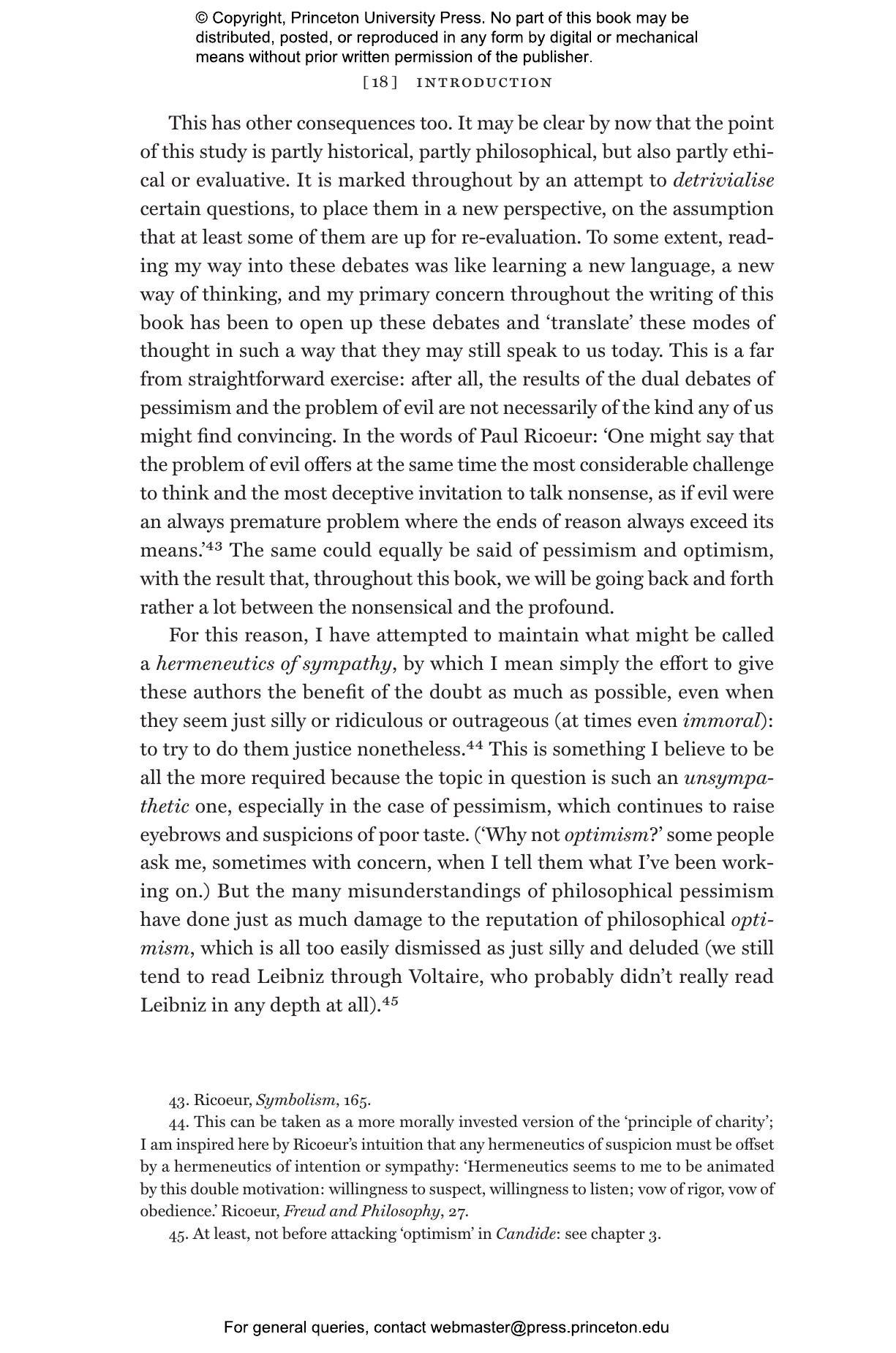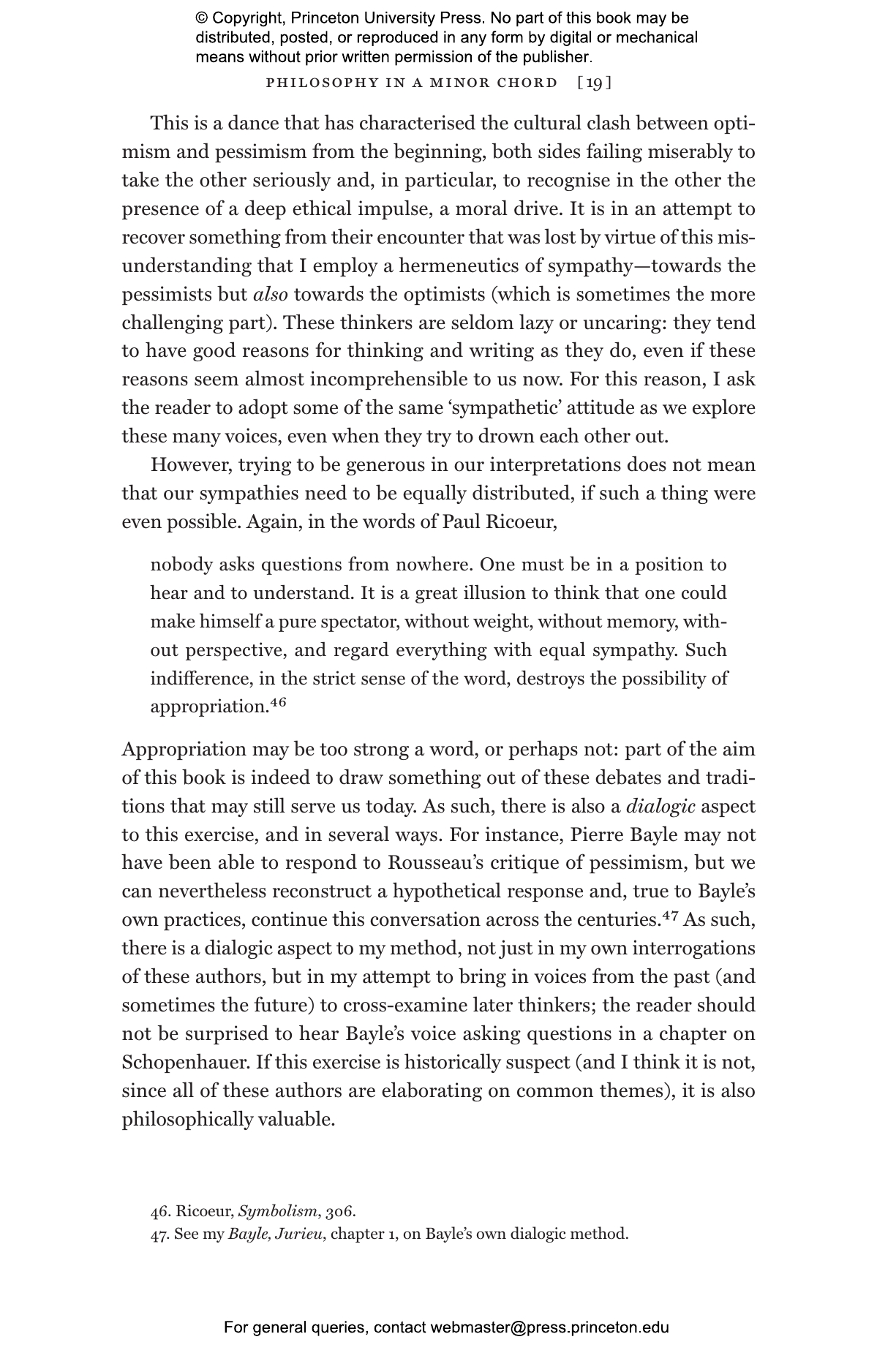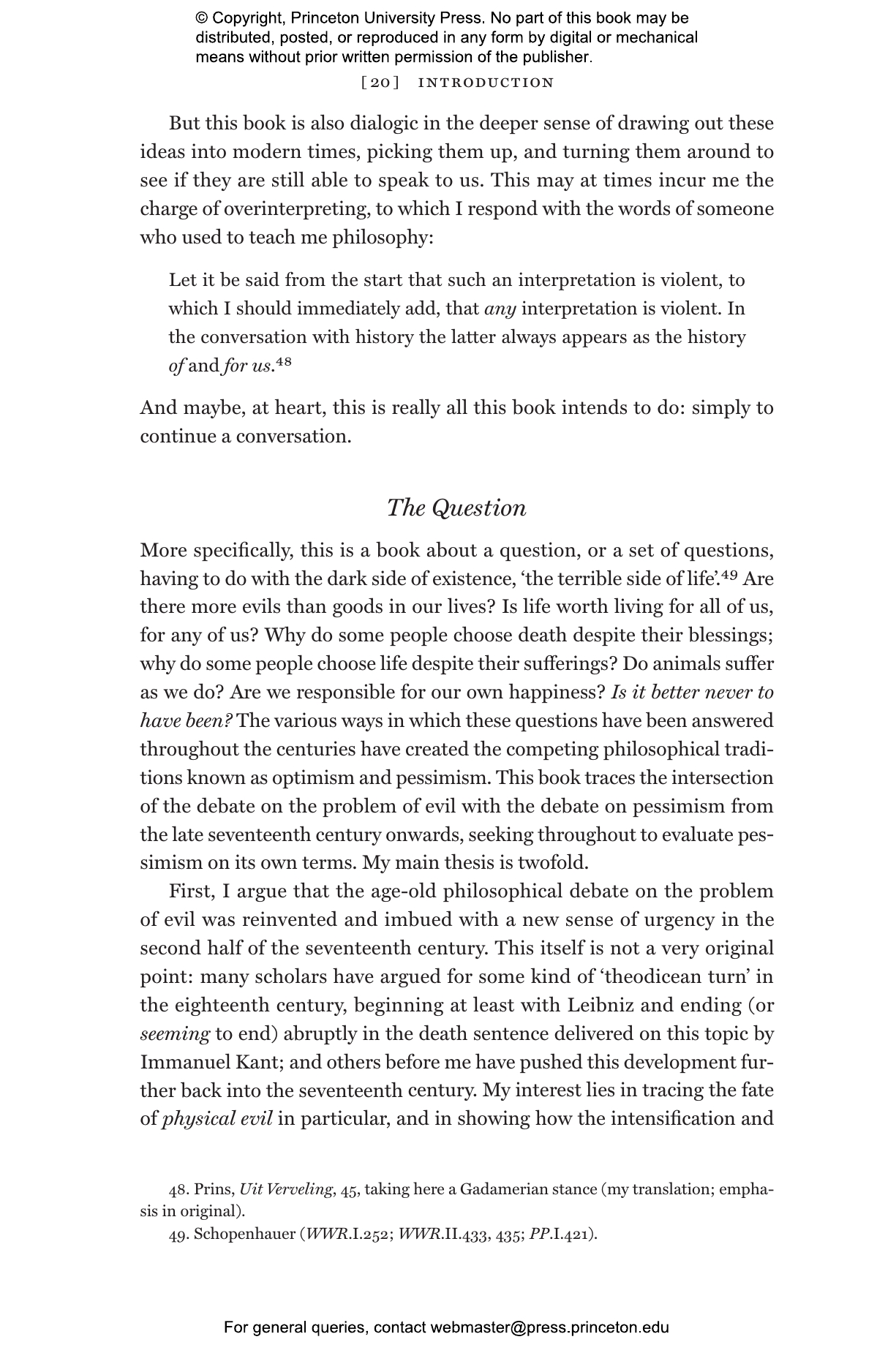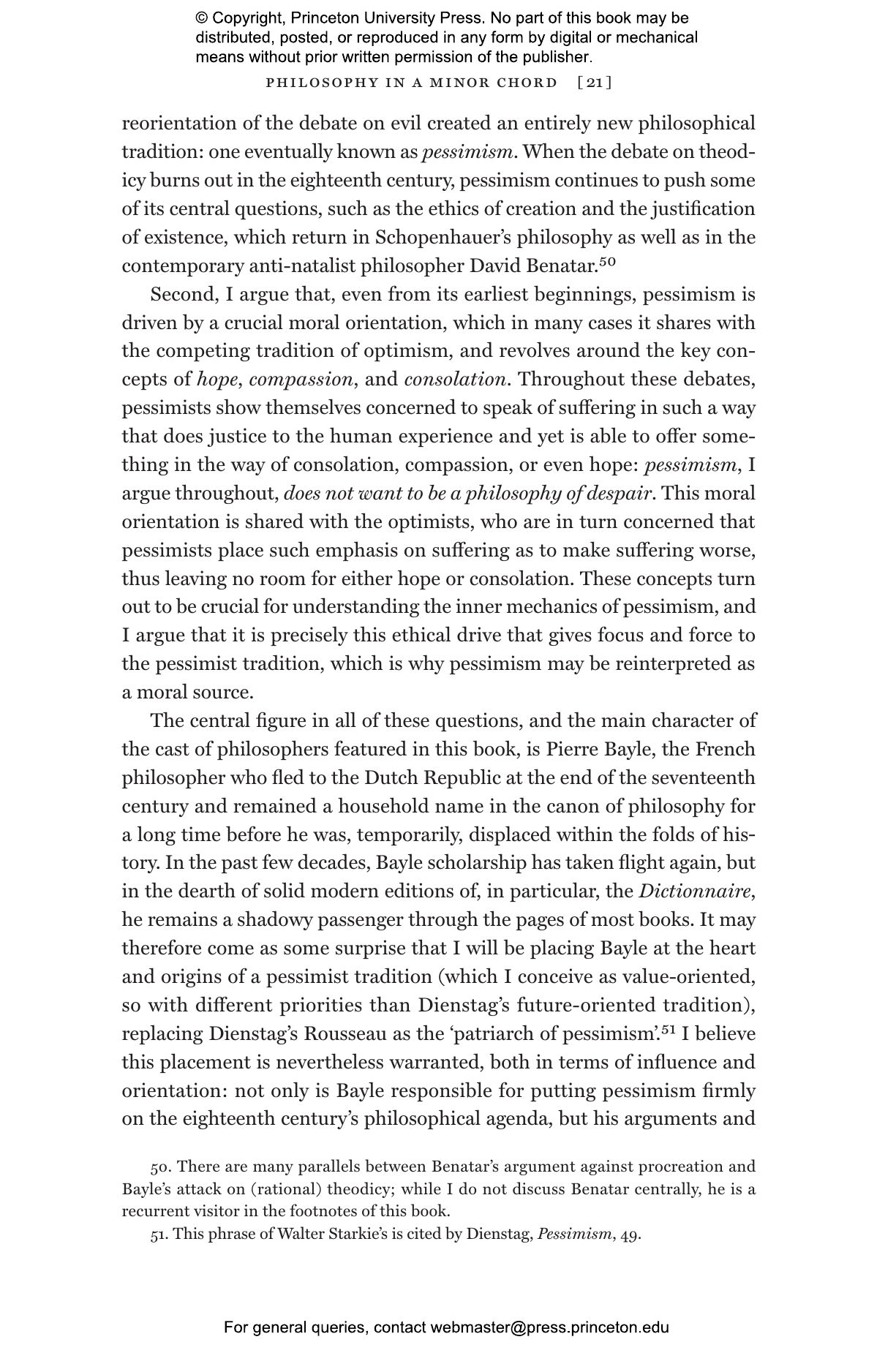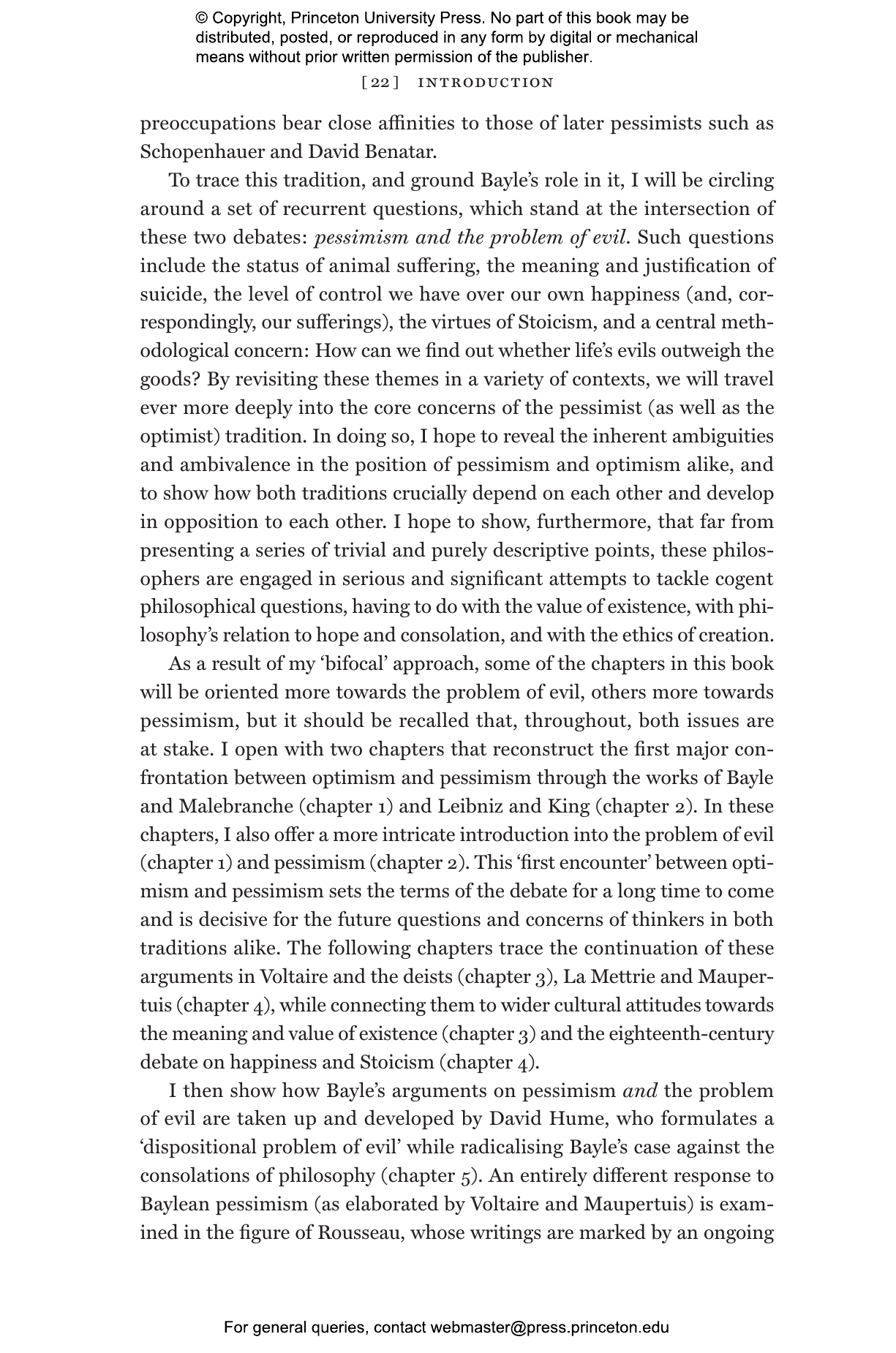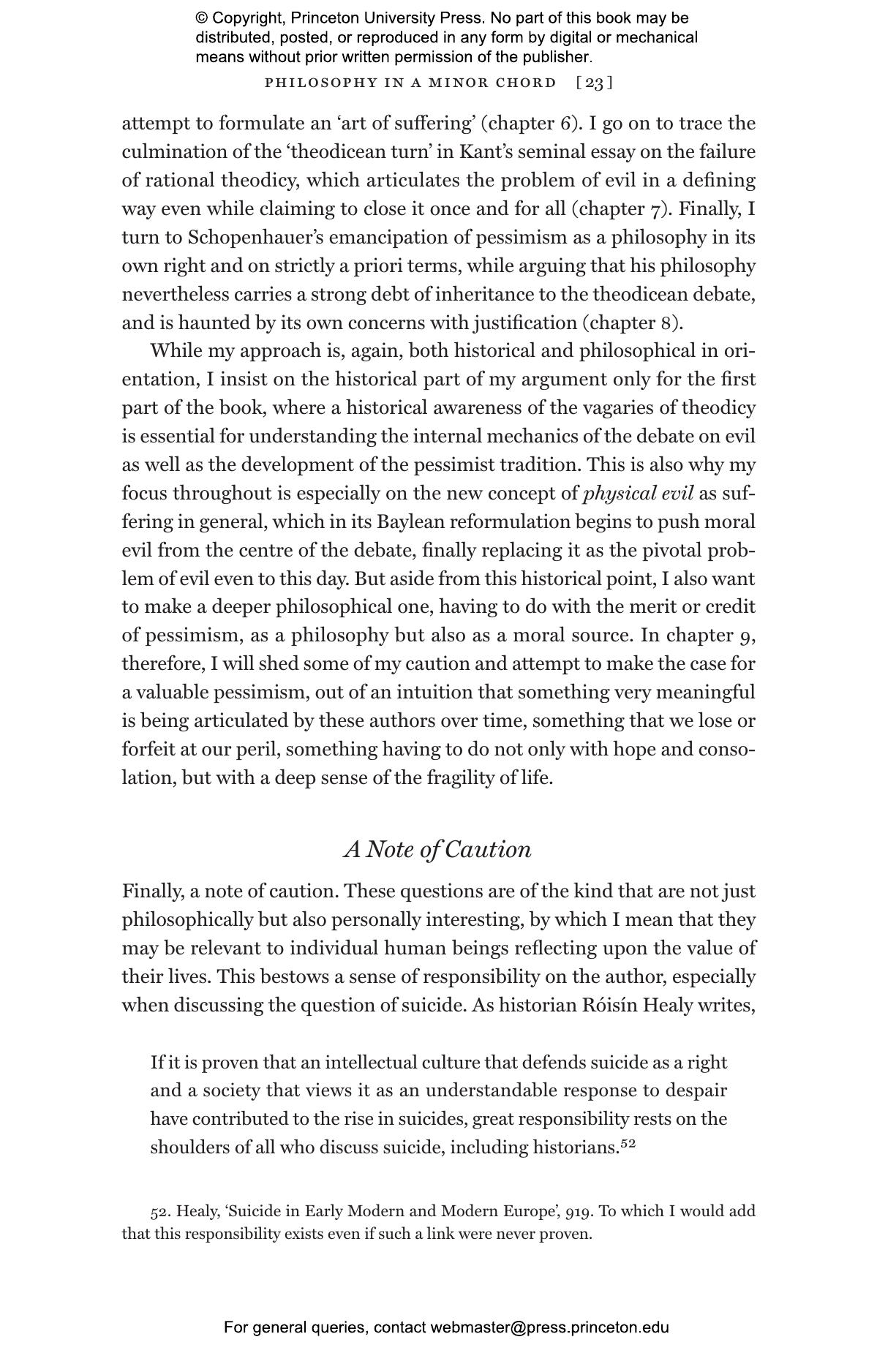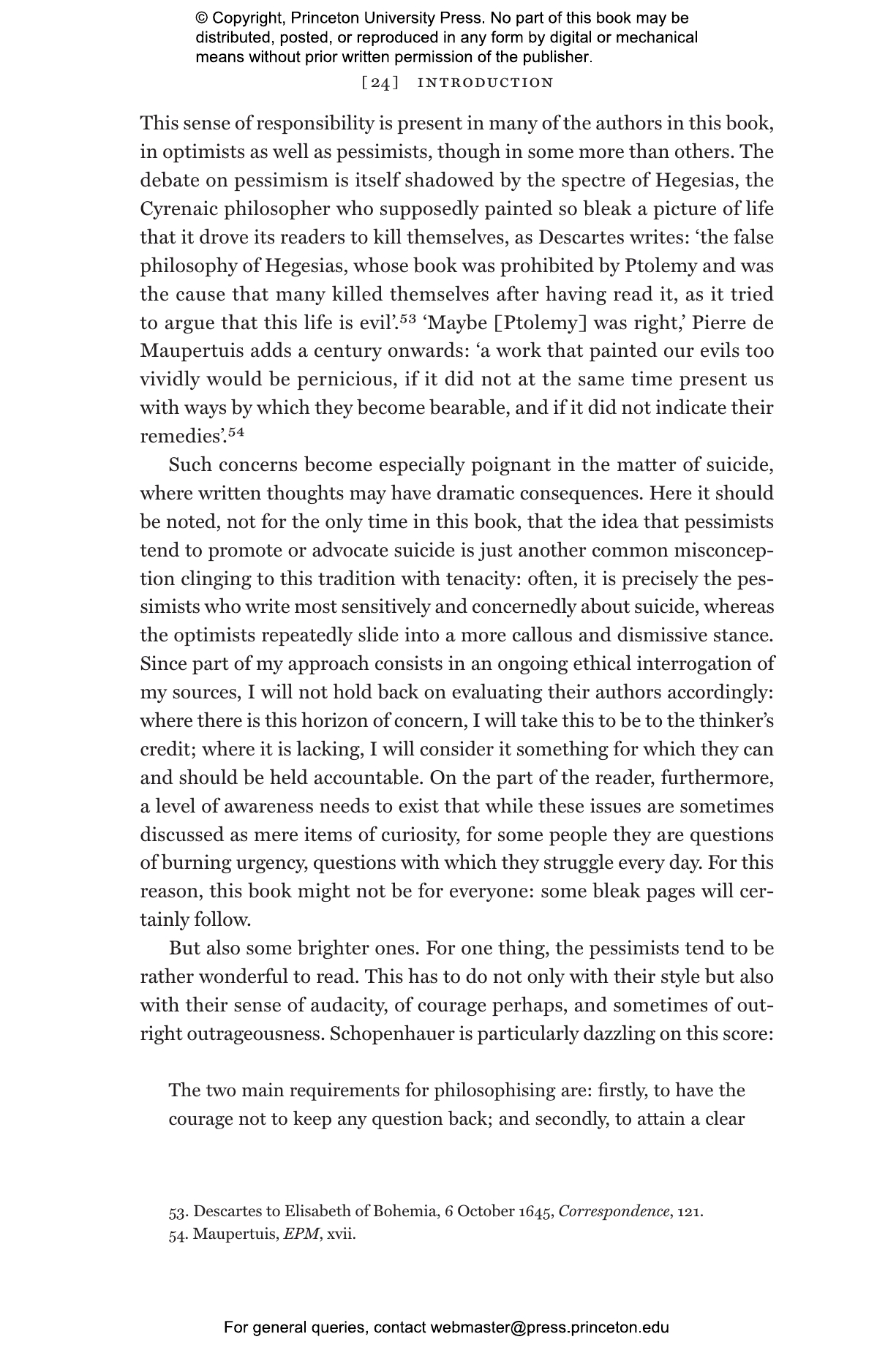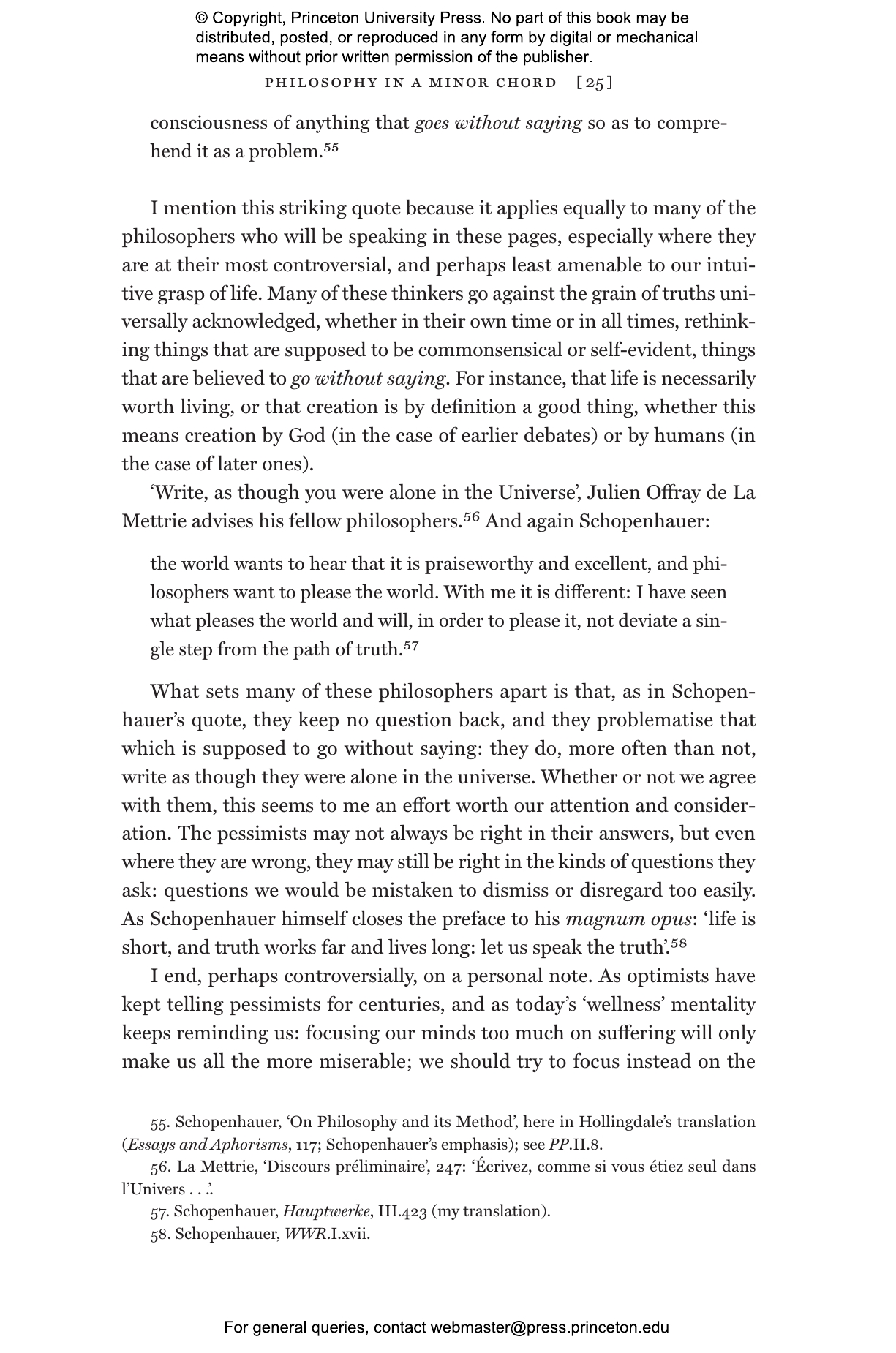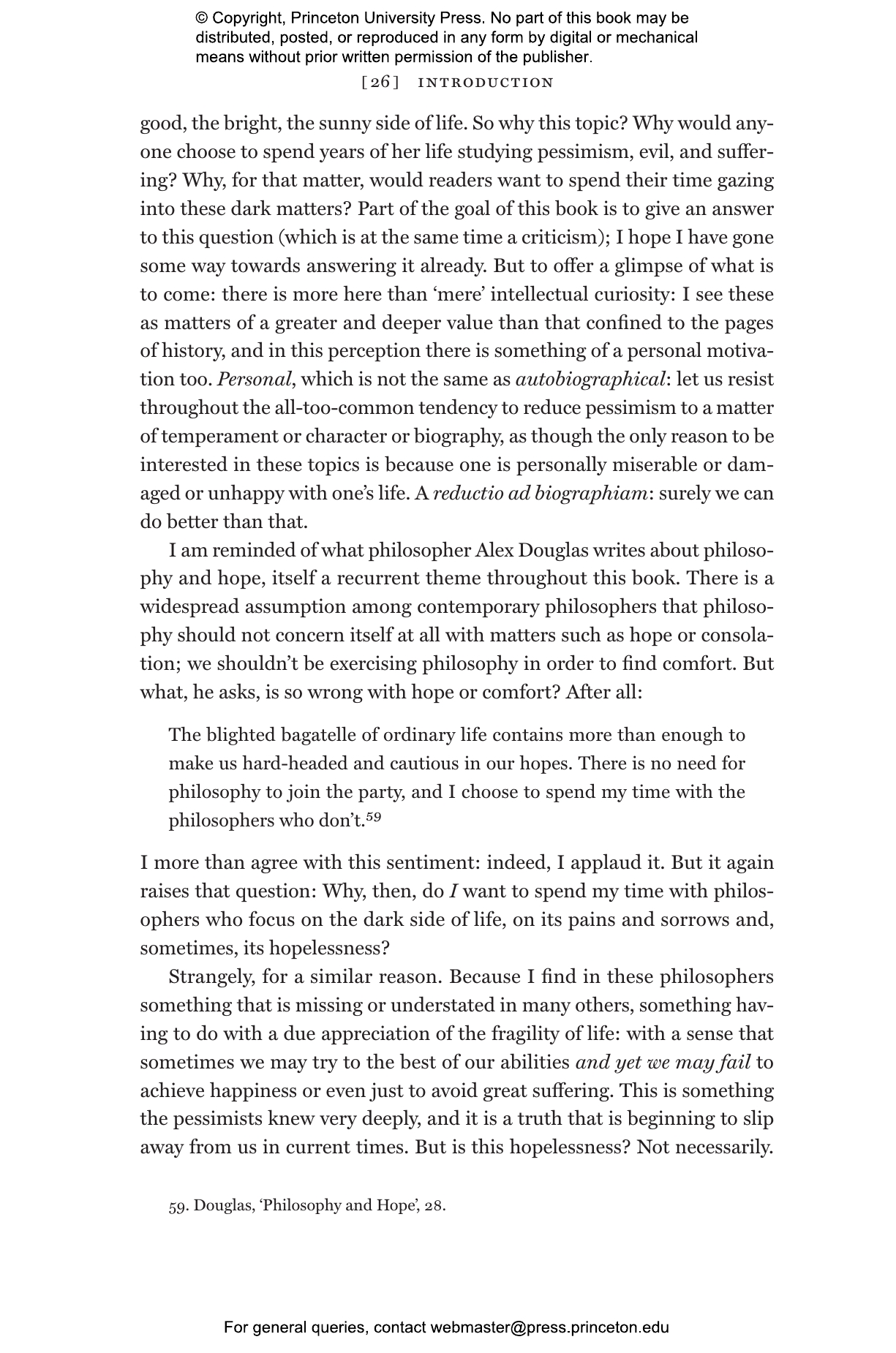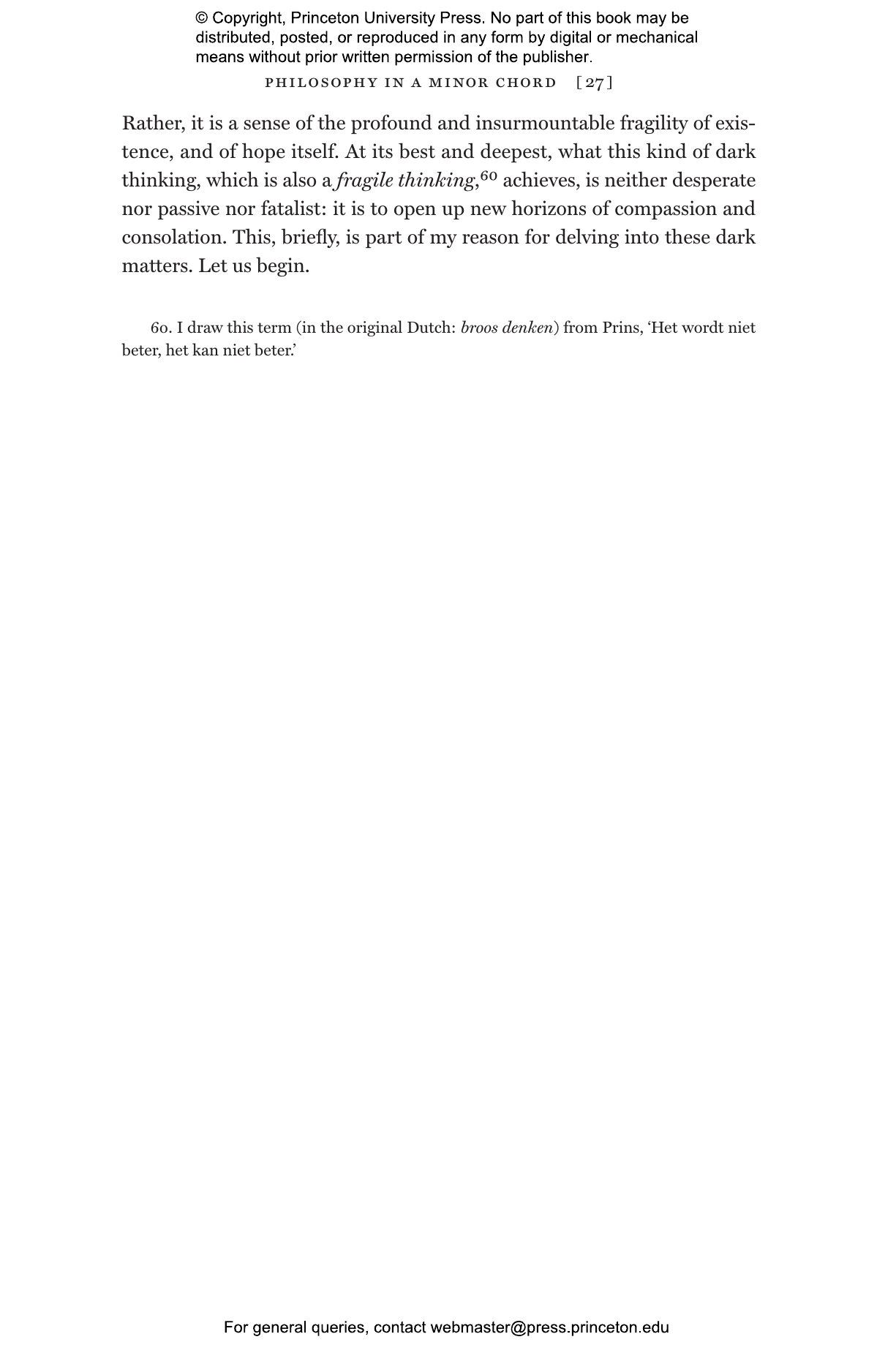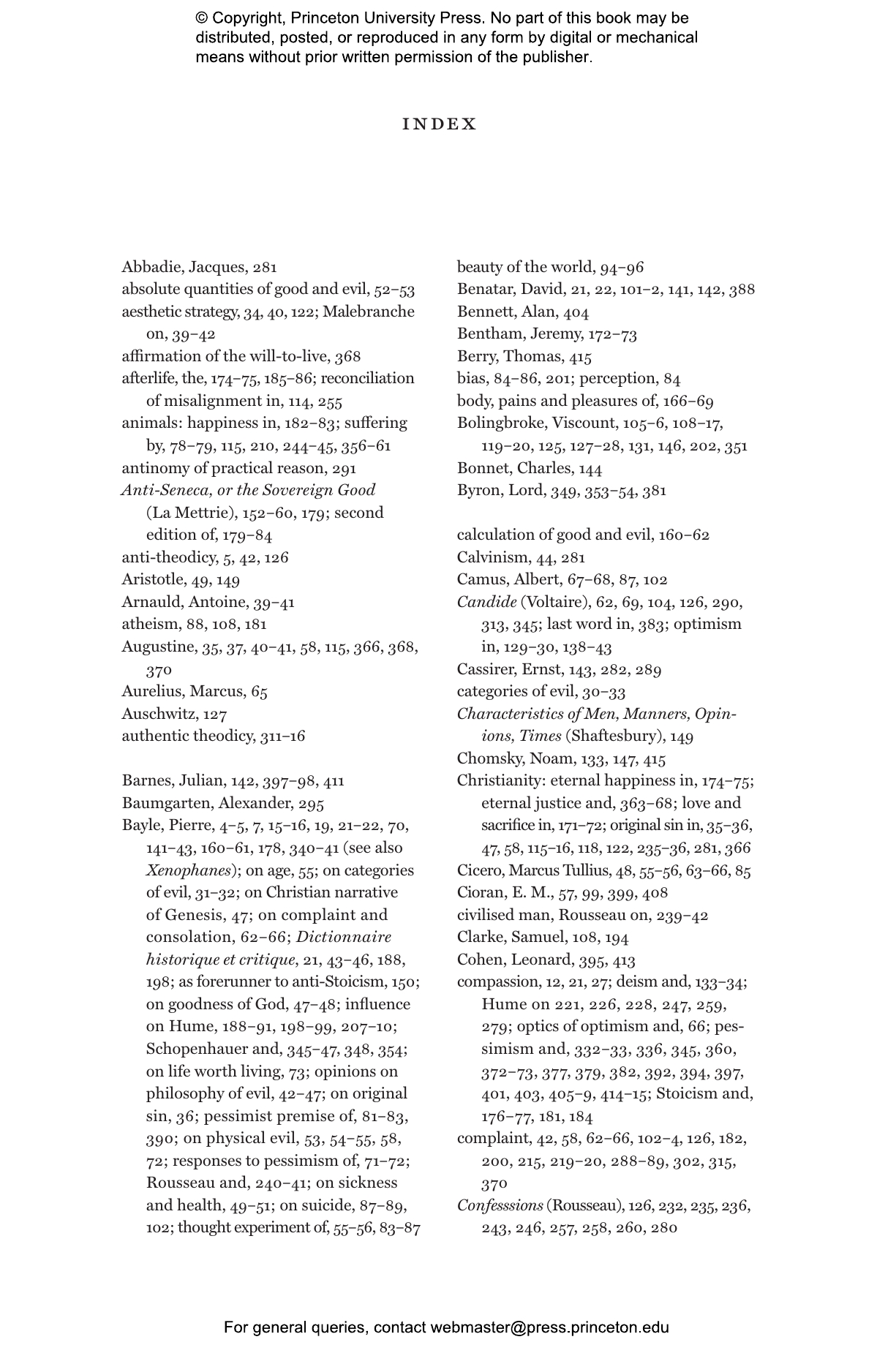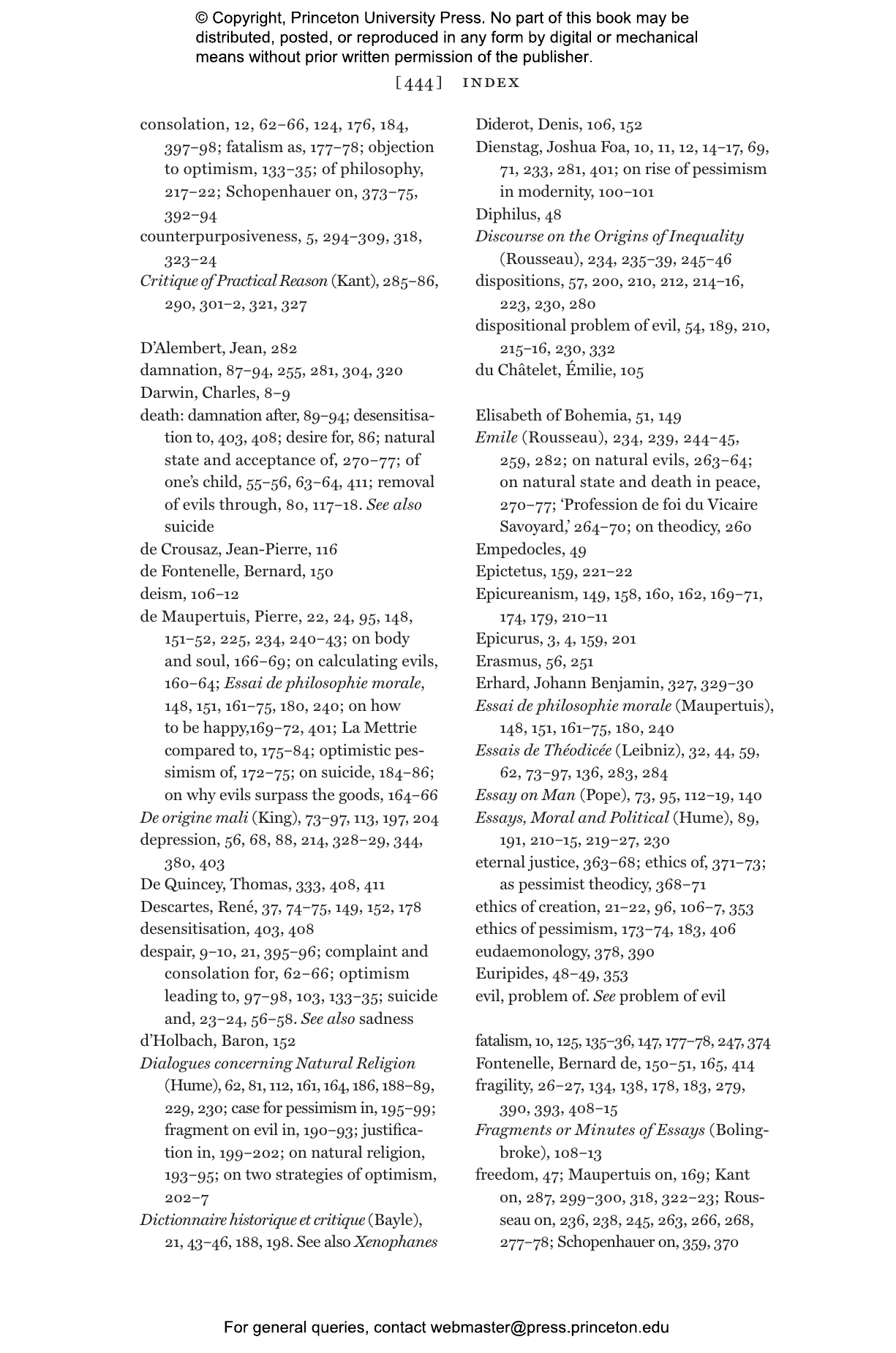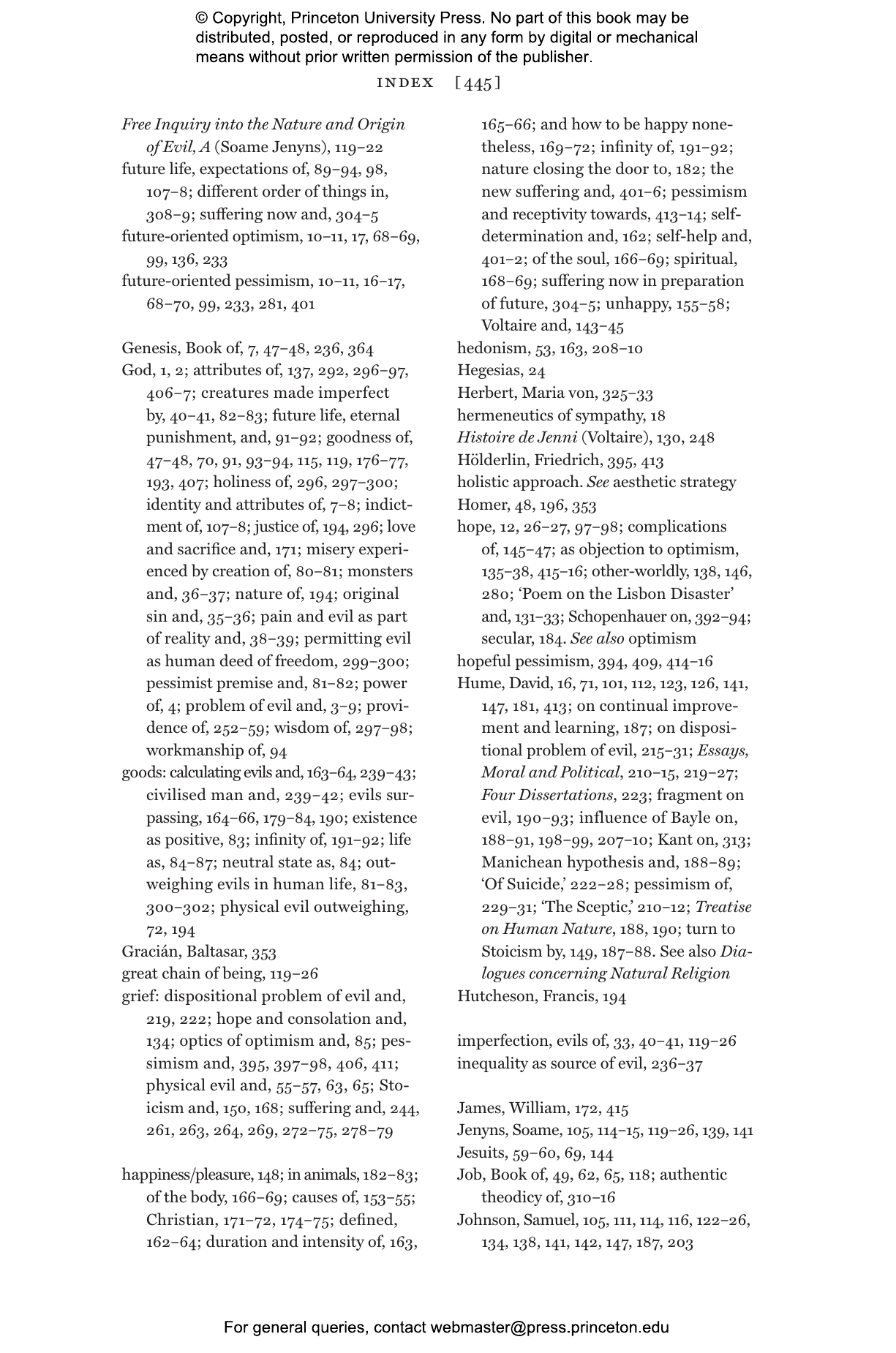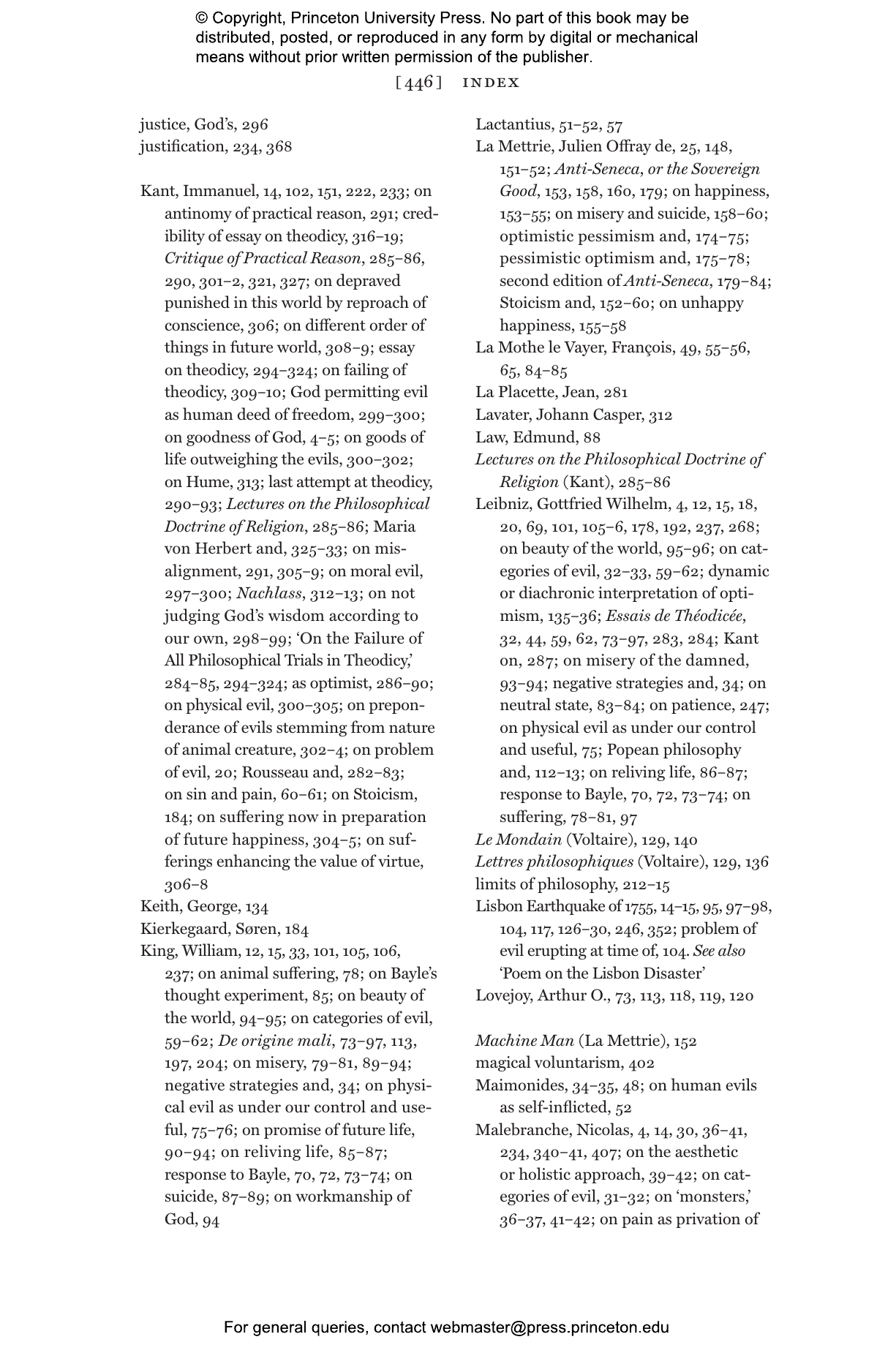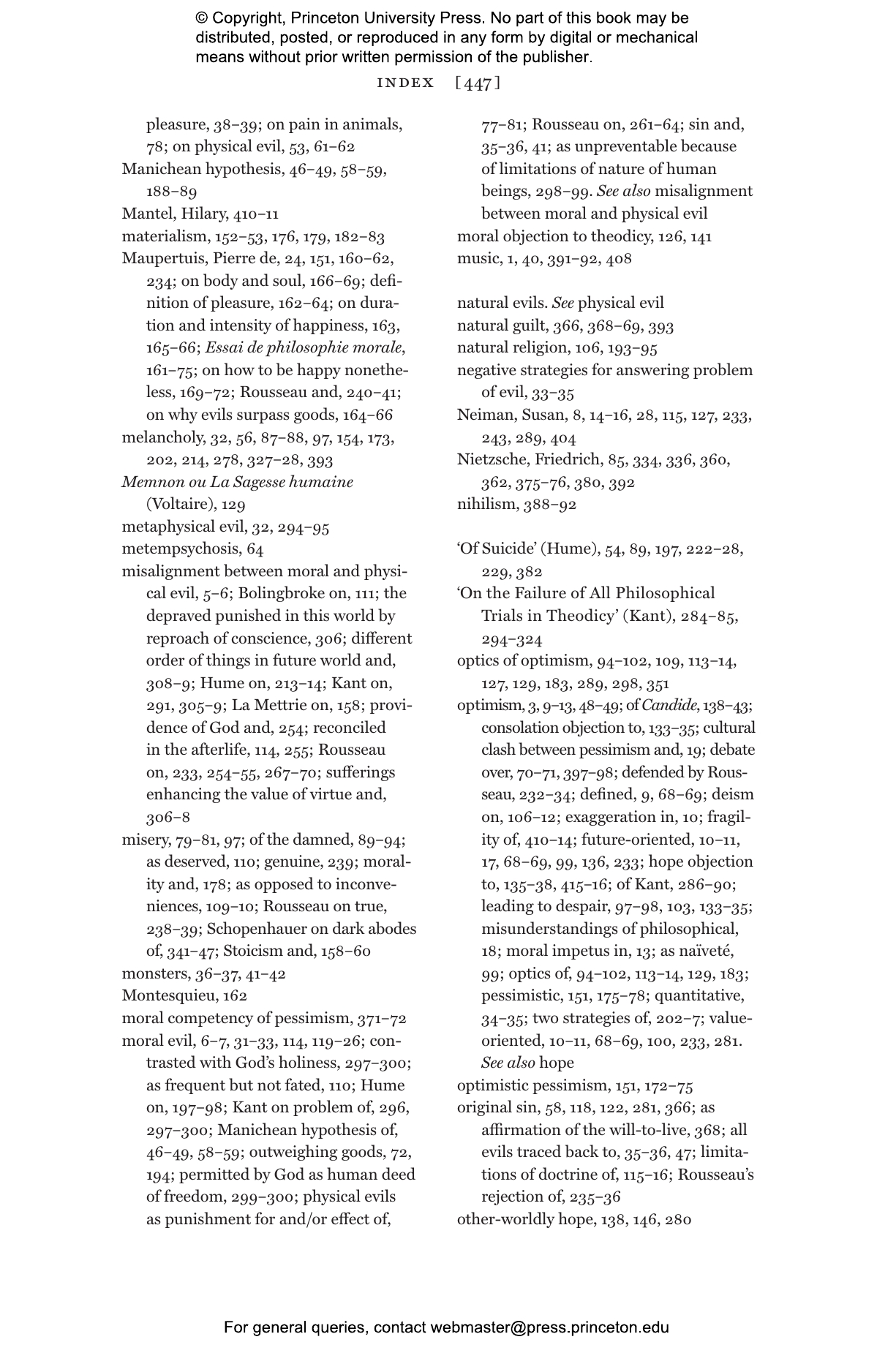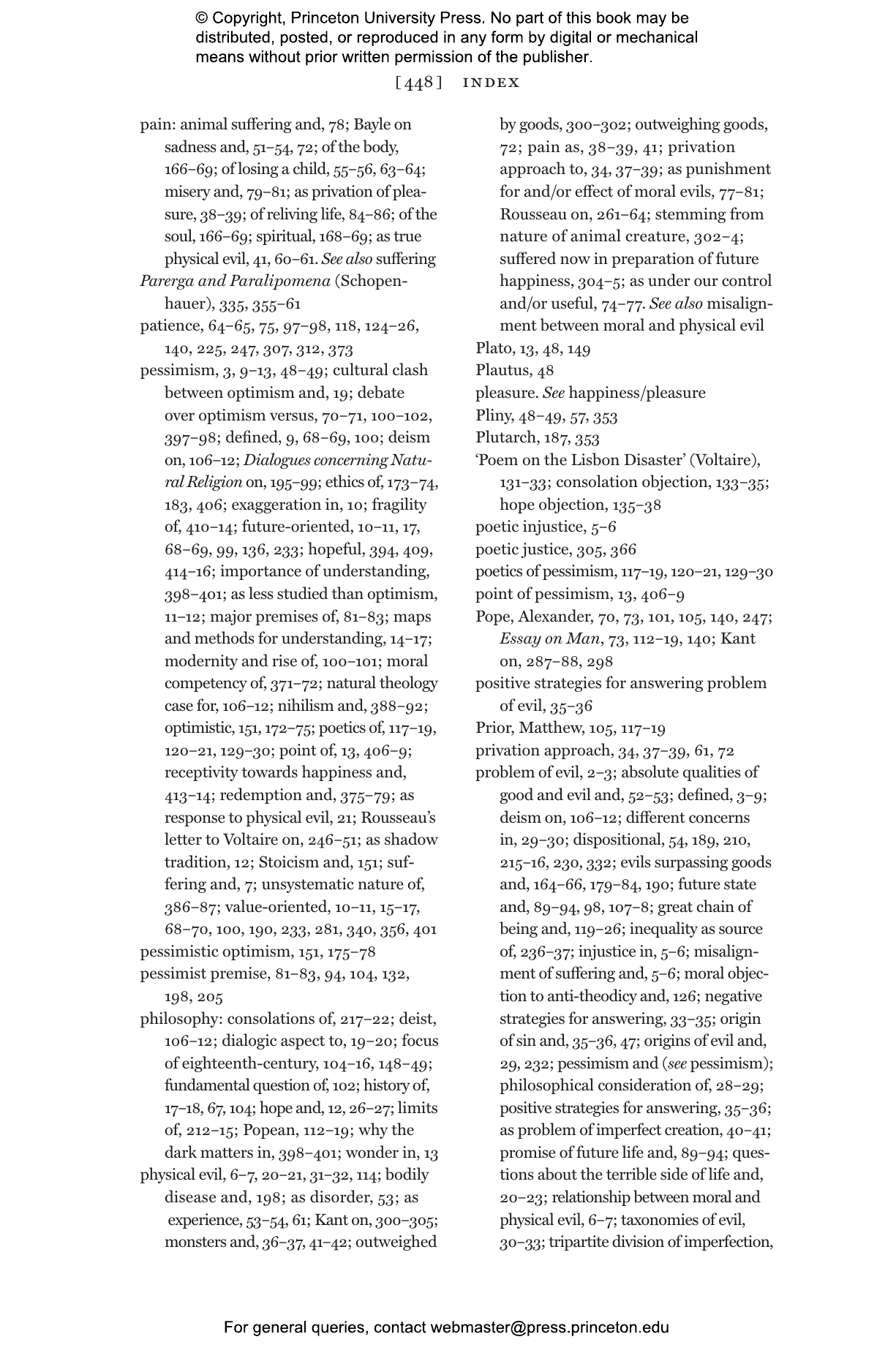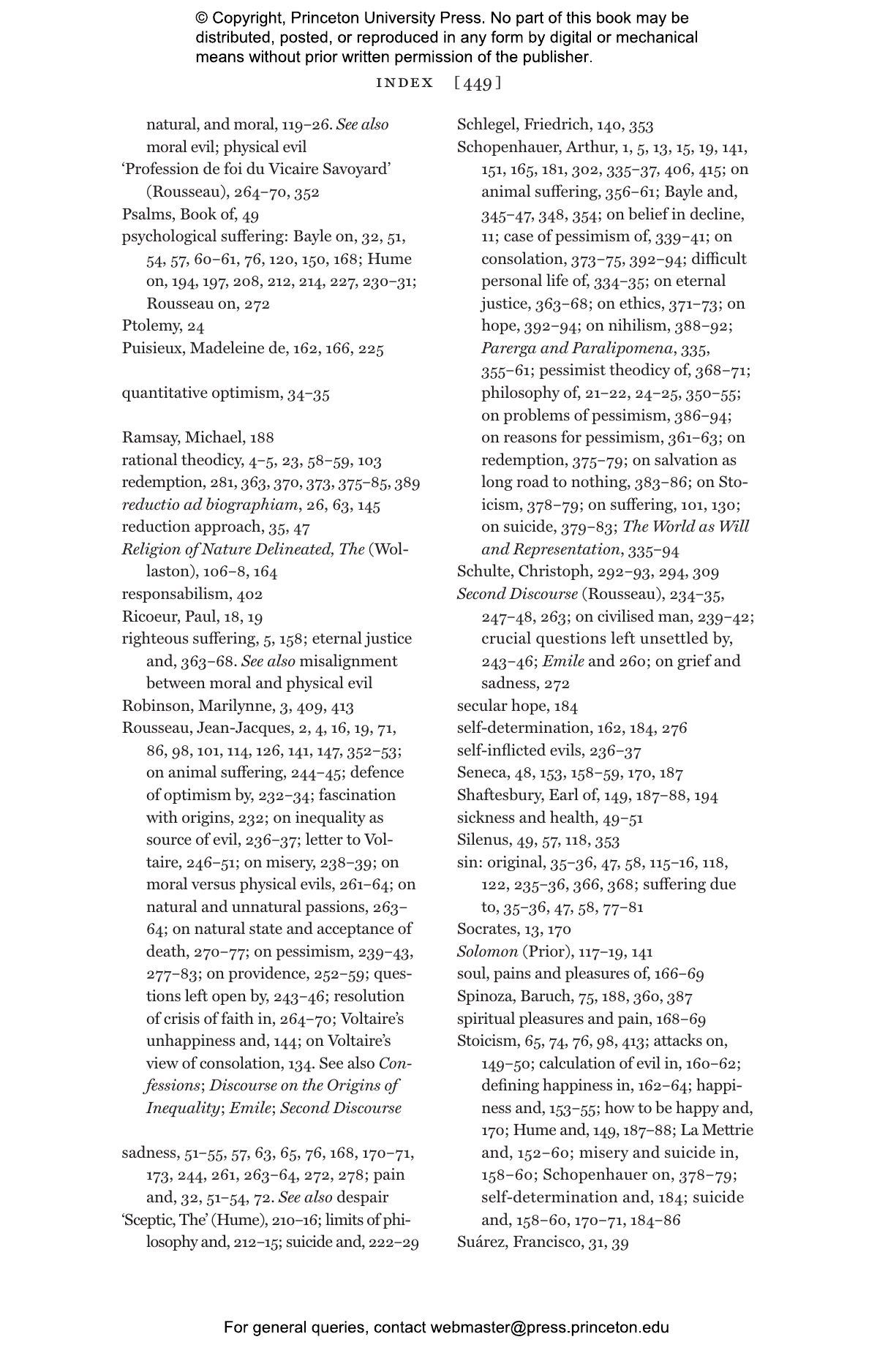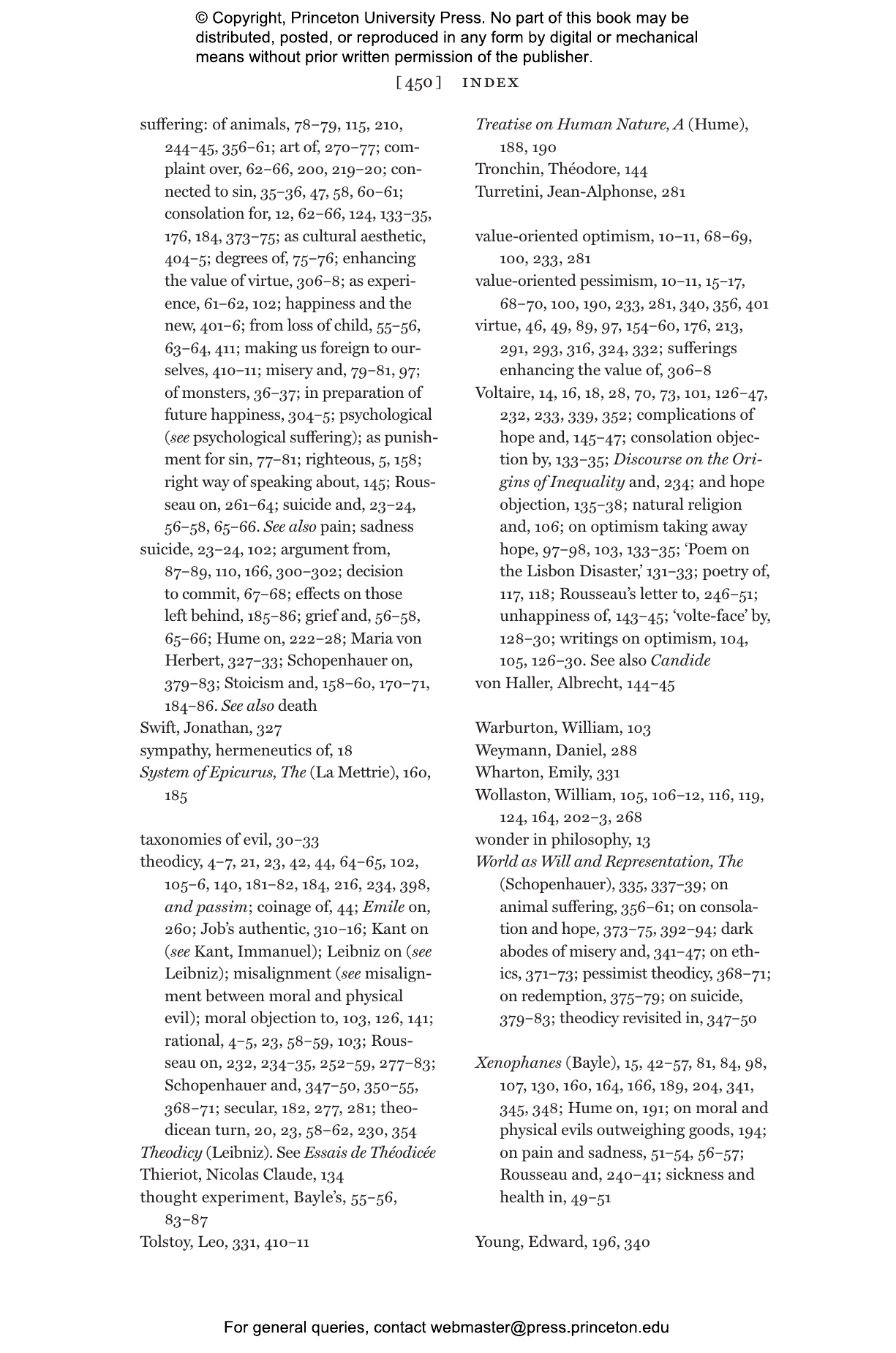In the seventeenth and eighteenth centuries, philosophers engaged in heated debates on the question of how God could have allowed evil and suffering in a creation that is supposedly good. Dark Matters traces how the competing philosophical traditions of optimism and pessimism arose from early modern debates about the problem of evil, and makes a compelling case for the rediscovery of pessimism as a source for compassion, consolation, and perhaps even hope.
Bringing to life one of the most vibrant eras in the history of philosophy, Mara van der Lugt discusses legendary figures such as Leibniz, Hume, Voltaire, Rousseau, Kant, and Schopenhauer. She also introduces readers to less familiar names, such as Bayle, King, La Mettrie, and Maupertuis. Van der Lugt describes not only how the earliest optimists and pessimists were deeply concerned with finding an answer to the question of the value of existence that does justice to the reality of human suffering, but also how they were fundamentally divided over what such an answer should look like.
A breathtaking work of intellectual history by one of today’s leading scholars, Dark Matters reveals how the crucial moral aim of pessimism is to find a way of speaking about suffering that offers consolation and does justice to the fragility of life.
Awards and Recognition
- A Times Literary Supplement Book of the Year 2021
- Honorable Mention for the Journal of the History of Philosophy Book Prize
"Van der Lugt succeeds brilliantly in her aim of setting aside the arid technical disputes in which philosophy often seems (at least to the layman) to be enmeshed, and applying it with compelling urgency to perennial and fundamental moral questions."—Ritchie Robertson, Times Literary Supplement
"This is a highly readable, elegantly written and sophisticated study that even non-philosophers will find accessible and illuminating, and perhaps also inspiring."—Steven Nadler, Literary Review
"Engaged and engaging."—Julian Young, Society
"Reading this book is a rare event and something of an adventure in that it is as solidly argued as it is eloquent and as learned as it is moving. Those who feel philosophers no longer care to address truly vital issues are especially in for a treat."—Wiep van Bunge, British Journal for the History of Philosophy
"[Van der Lugt] handles these ‘dark matters’—evil, suffering, suicide—with admirable delicacy. As such her book is an invaluable source for anyone interested in the history of human thinking about evil and suffering, hope and consolation."—Maikki Aakko, Heythrop Journal
"Prospective readers of Dark Matters should come to this work first of all for van der Lugt’s masterclass in exegesis of Enlightenment philosophy and cultural criticism. Readers should stay for her personal insights into the problem of suffering and her ingenious insistence on pessimism as a moral source. Don’t be fooled by its somber title; Dark Matters is a treasure-trove of moral argument and inspired philosophical insights that left this reader consoled and hopeful."—David Greder, Reading Religion
"A monumental achievement."—The Philosopher
“Dark Matters is history of philosophy at its best—scholarly, argumentative, and lively. Van der Lugt traces the ways in which the problem of theodicy—of justifying the works of God in a world full of evil—was transformed across the eighteenth century into the choice between optimism and pessimism, understood not as psychological expectations of the future but as philosophical alternatives in the face of suffering.”—John Robertson, University of Cambridge
“This beautifully written and carefully argued book deploys a hermeneutics of sympathy for those philosophers who wonder whether life is worth living at all. The effects are a kind of alchemy: while one contemplates the most awful thoughts, van der Lugt’s expert and gentle guidance creates the joy that comes from knowing one is not wholly alone in the world.”—Eric Schliesser, University of Amsterdam
“A remarkable work. Dark Matters engages its reader in a very personal way with questions that are central to human experience. This beautifully written book vividly brings out the ways in which what philosophers call ‘the problem of evil’ is not merely an intellectual puzzle but also a challenge to beliefs about what makes life worth living.”—James A. Harris, University of St Andrews
“Welding a subtle analysis of philosophical pessimism to a brilliant genealogy of the early modern problem of evil, this book is a genuine tour de force: faced with the ‘ultimate questions,’ philosophy, as it turns out, still matters.”—Wiep van Bunge, author of From Bayle to the Batavian Revolution: Essays on Philosophy in the Eighteenth-Century Dutch Republic
"A major work in the history of ideas and an unusual pleasure to read. Dark Matters is a book with the power to make people think differently about their lives."—Ritchie Robertson, author of The Enlightenment: The Pursuit of Happiness, 1680–1790
"Dark Matters is an engaging and accessible study in intellectual history and philosophy. Van der Lugt convincingly argues that pessimism at its best leads us to a morality centered on compassion."—John P. Wright, author of Hume's "A Treatise of Human Nature": An Introduction
